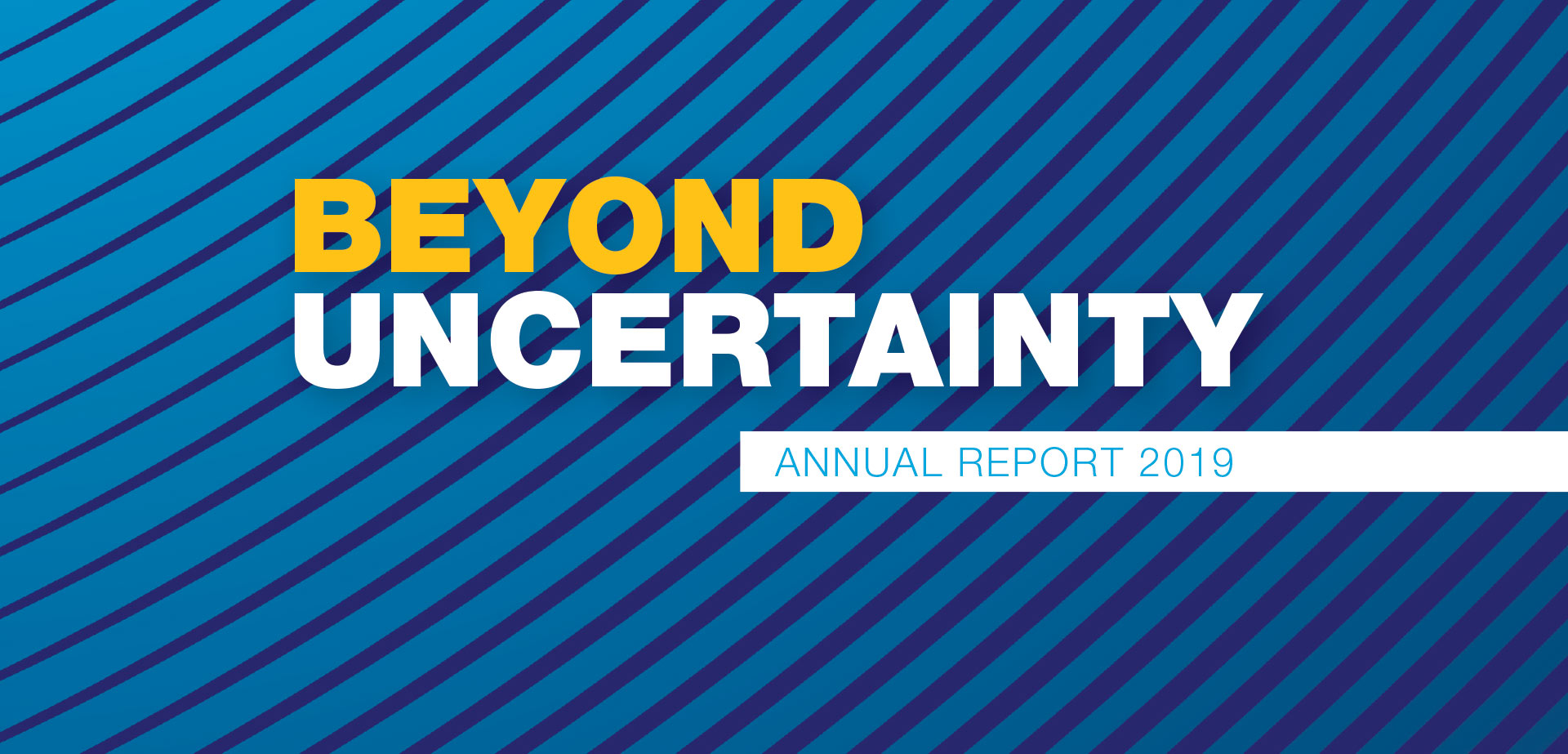

The world stands at a crossroads. In 2019, we saw multilateralism come under increasing pressure from tensions over trade and technology and a fragmented political landscape. Our quest for inclusive prosperity remained hobbled by rising inequality and ever louder voices of protectionism, which continued to dominate national and international discourse.
Over the past year, the nexus between trade and the environment took centre stage as we grappled with how trade can be part of the solution to the relentless climate crisis. The challenges and opportunities of digitalization for development came into sharper focus as the extent of growing digital divides and new digital pathways for structural transformation became more widely acknowledged.
Despite the fraught context, UNCTAD continued to support developing countries to step up efforts to tackle poverty and extend the ladder of opportunity to the millions who remain far behind economically. We continued facilitating trade through mechanisms such as the African Continental Free Trade Area, under which trading commences in July 2020, creating the world’s largest free trade area.
UNCTAD stepped up our crucial efforts helping countries to attract investment in the Sustainable Development Goals, while advising governments on the implications of a changing climate on trade and development. We also worked with countries to design policies to enhance their productive capacities and tap into the opportunities offered by e-commerce and new technologies.
As we embark on the road to Barbados, host of UNCTAD’s 15th ministerial conference scheduled for 18 to 23 October 2020, we see hope in the strong commitment by member States to maximize the potential of trade in addressing the development challenges of our time. It is our conviction that UNCTAD15 will play a pivotal role in aligning support to the economic dimension of the 2030 Agenda, helping kick-off a “decade of action” to accelerate achievement of sustainable development.
UNCTAD will continue catalysing change as we race to meet the UN Sustainable Development Goals by 2030. We count on the support of all.

Mukhisa Kituyi, Secretary-General of UNCTAD






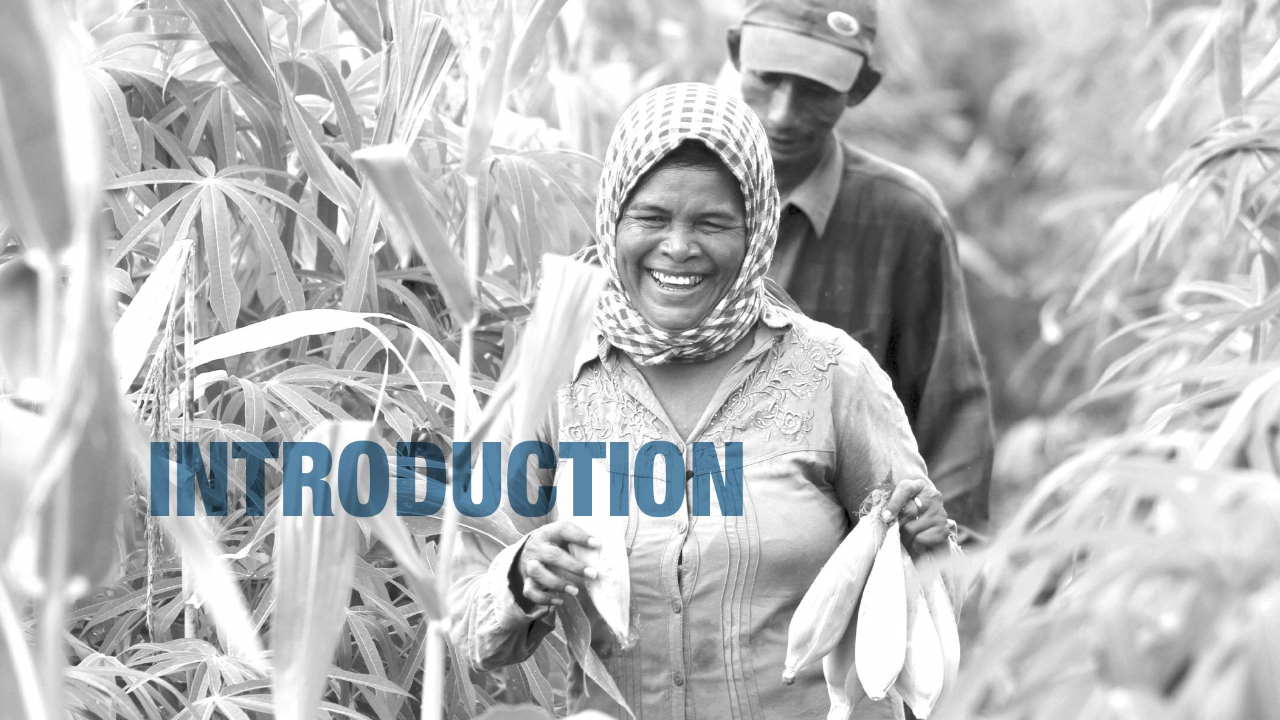
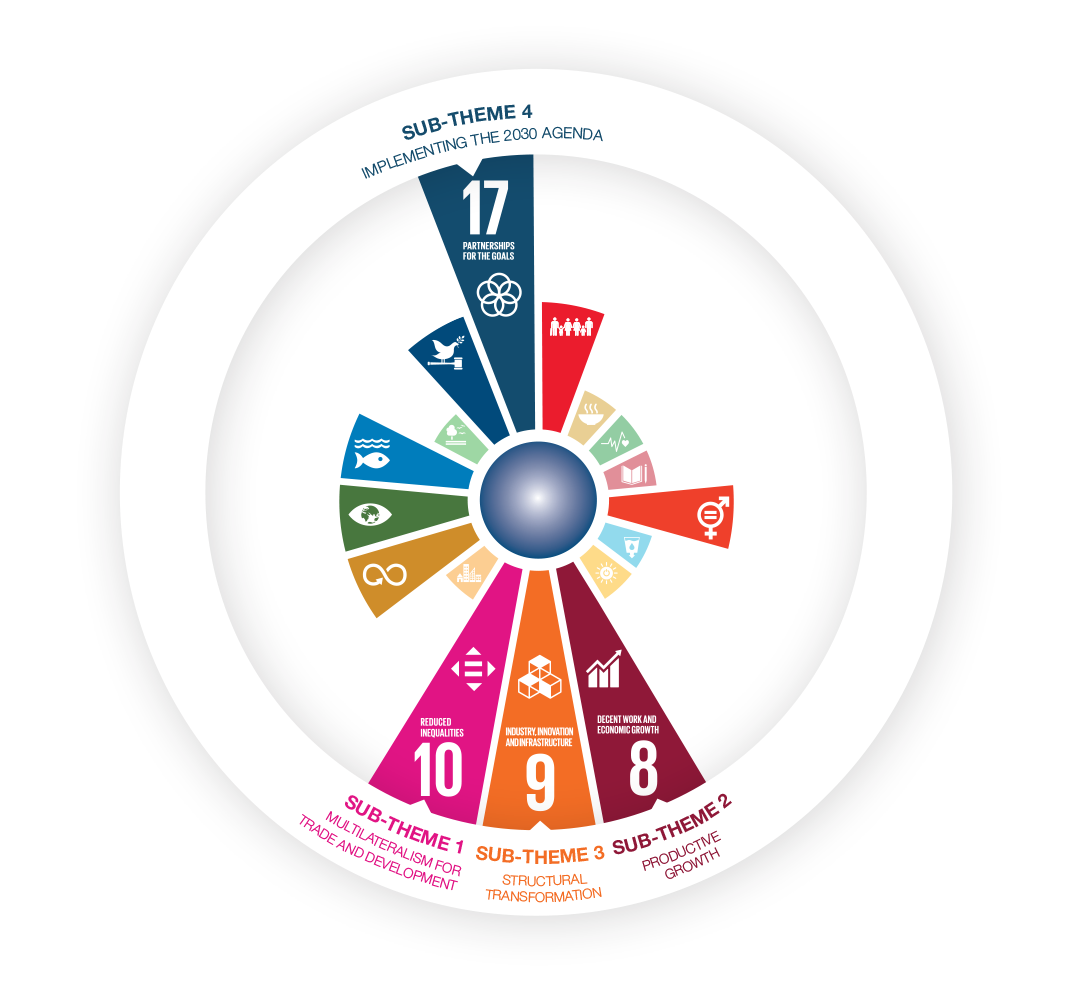




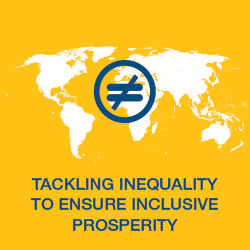
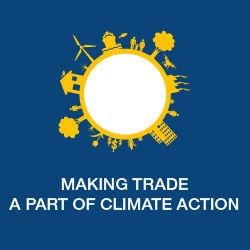
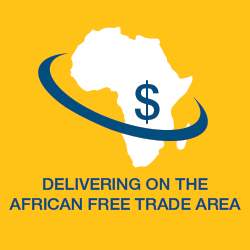
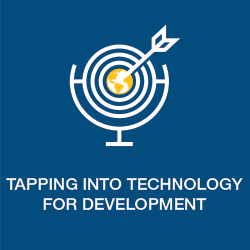
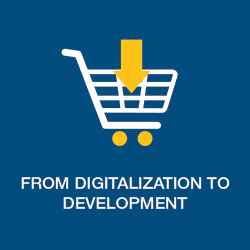
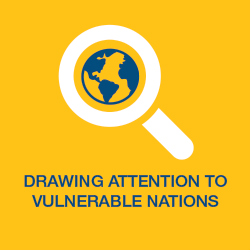
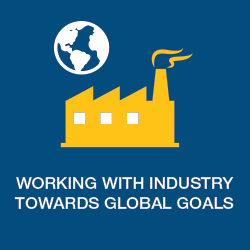
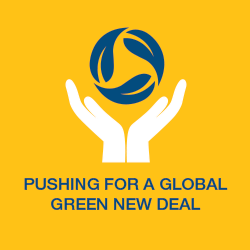
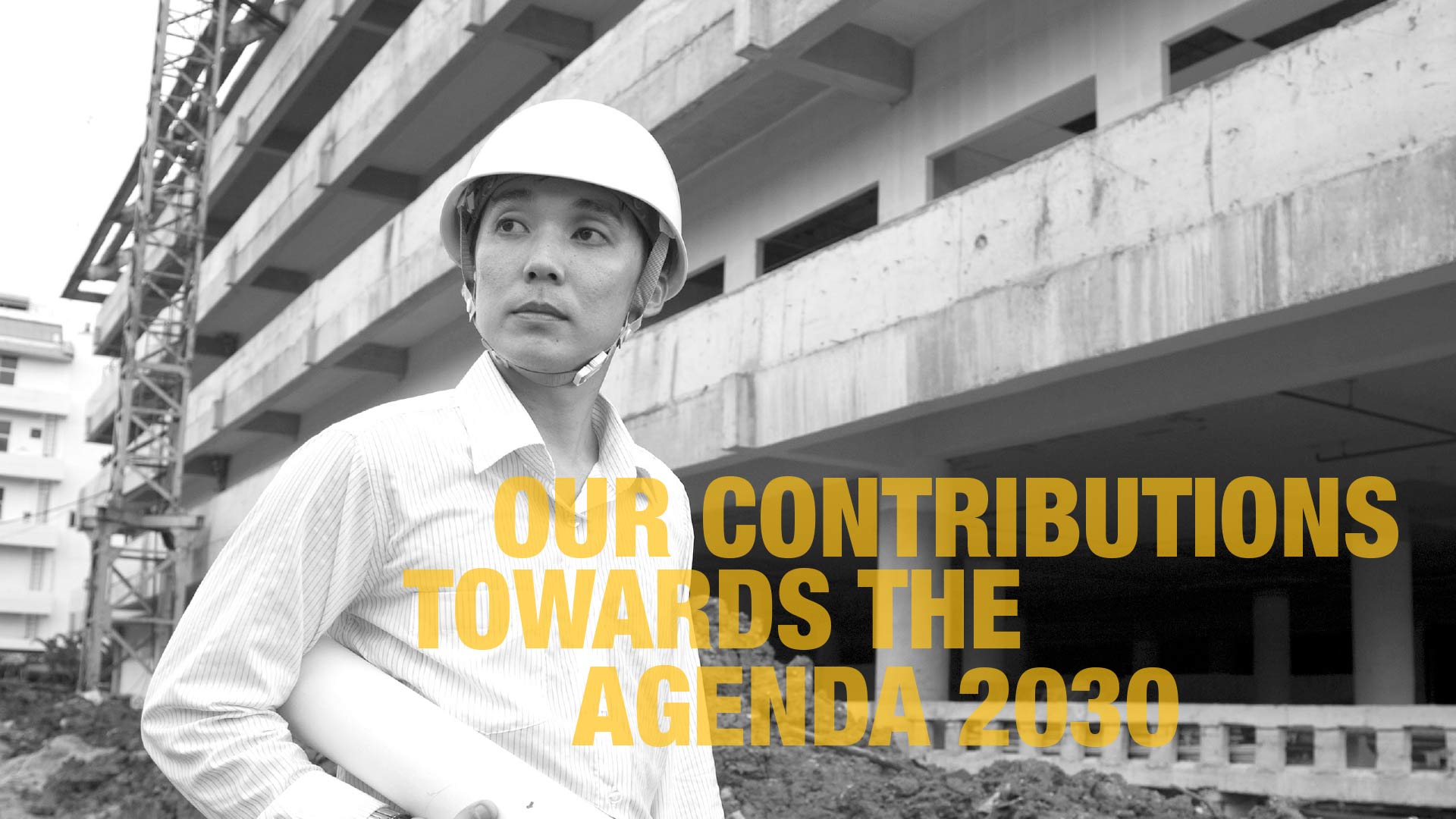
The 2030 Agenda for Sustainable Development, adopted by the international community in 2015, is a global plan of action for people, planet and prosperity.
At its core are 17 interlocking Sustainable Development Goals that have gained global momentum.
UNCTAD, through its three pillars - research and policy analysis, consensus-building and technical cooperation - effectively contributes to achieving the goals and relevant targets set in the outcomes of major United Nations conferences.
In September 2019, the UN Secretary-General António Guterres called on all sectors of society to mobilize for a decade of action to generate an unstoppable movement pushing for the required transformations.
Delivering on this transformative agenda demands an entirely new level of international partnership. With nearly 60 years of expertise and experience in trade and development, UNCTAD is playing its part.
We continue to provide high-quality and evidence-based research and analysis that feeds national, regional and international policies with the aim of generating inclusive and sustainable development under the principle of “leaving no one behind”. Based on such analysis, our technical cooperation builds the capacities needed in developing countries, with a focus on the least developed countries, landlocked developing countries and small island developing states.
In the face of rising trade protectionism, declining trust in multilateral solutions and a weakening global enabling environment for development, UNCTAD is called upon to focus its resources to help developing countries build productive capacities, address widening technological and digital divides, ensure sound macroeconomic management and advise governments on financing for development and addressing illicit financial flows.
We help implement the global development agenda by assisting developing countries in meeting their development goals, including reducing inequalities, addressing vulnerabilities, poverty eradication, improving the wellbeing of citizens and addressing the opportunities and challenges created by globalization.
We work most of all on the four goals that are in focus in this report: Goal 17, Goal 10, Goal 9 and Goal 8. Given UNCTAD's mission of "prosperity for all," Goal 12, Goal 14, Goal 15 and Goal 16 are also featured as areas where we made important contributions in 2019.
We support the achievement of all 19 targets under Goal 17 by taking a leading role in the inter-agency dialogue on “the means for implementation” – the hard task of working out exactly how countries can fulfill their commitment to the 2030 Agenda for Sustainable Development.
This work complements our role as a significant institutional stakeholder of the financing for development process, which was recognized and strengthened by the Addis Ababa Action Agenda, a plan devised by the international community in 2015 to find ways to pay for the 2030 Agenda and make good on longstanding financing commitments. The international community gave us a mandate in 2016, the Nairobi Maafikiano, that reflects these priorities.
The mandate asks us to contribute to “the effective implementation of and follow-up to the 2030 Agenda for Sustainable Development and relevant outcomes from global conferences and summits, as related to trade and development” and help countries meet the finance, technology, capacity building, trade and systemic targets of Goal 17.
UNCTAD is a valued partner for the provision of advisory services on trade integration, policy and capacity-building in Africa and, as such, lent its support to the African Union Commission and its members in negotiations on the African Continental Free Trade Area (AfCFTA), which entered into force in May.
The AfCFTA promises to create the world’s largest free trade area, a $3.4 trillion single continental market for goods and services that will ease trade across borders for the continent’s 1.3 billion people.
UNCTAD Secretary-General Mukhisa Kituyi joined the continent’s leaders at the launch of the AfCFTA’s operational phase in Niamey, Niger, in July.
We supported the AfCFTA process by drafting technical notes on product-specific rules of origin and related concepts as well as providing bilateral advisory services and executive training to AfCFTA negotiators, including from least developed countries (LDCs).
In addition, we produced evidence-based policy recommendations through our Economic Development in Africa Report 2019, which emphasized to member States the potential of rules of origin in maximising trade in value addition and structural transformation within Africa.
The report was disseminated through public and private sector engagements on inclusive policy dialogue and better customs and institutional capacity-building in Africa and Europe. It was also presented and discussed at the AfCFTA launch in Niamey, among other forums.
In 2019, we also finalized an online platform jointly developed with the African Union to help remove non-tariff barriers to trade continent.
Traders and businesses moving goods across the continent can now instantly report the challenges they encounter, such as quotas, excessive import documents or unjustified packaging requirements.
The tool, tradebarriers.africa, will help African governments monitor and eliminate such barriers, which slow the movement of goods and cost importers and exporters in the region billions annually.

Landlocked developing countries (LLDCs) face special trade and development challenges, arising from their lack of territorial access to the sea and geographical remoteness from international markets.
In recognition of the special development needs of LLDCs, the international community adopted the Vienna Programme of Action (VPoA) for these countries for the decade 2014-2024. The overarching goal of the VPoA is to help the LLDCs achieve sustainable and inclusive growth and to eradicate poverty.
The work of UNCTAD on LLDCs aims to contribute to the effective implementation of the priorities agreed in the VPoA, and to assist LLDCs in achieving the Sustainable Development Goals.
In 2019, we continued capacity-building activities to empower LLDCs to foster productive capacities, export diversification and structural economic transformation. We organized training workshops in Botswana, Laos, Namibia, Nigeria, Rwanda and Thailand.
Our assessments show that progress has fallen far short of what is needed to meet the VPoA’s goals. In some areas, LLDCs have regressed. Average GDP growth fell sharply from 5.2% in 2014 to 3.1% in 2016. While growth recovered to 4.4% in 2018, it remains below the average of 6% achieved in the decade prior to the VPoA.
We helped identify remaining obstacles and actions needed to accelerate the implementation of the VPoA during a comprehensive high-level midterm review on the implementation of the programme in December in New York.
During the meeting, we organized events on impact investing and innovative resource mobilization to foster productive capacities and structural economic transformation in LLDCs, and on how trade facilitation and transit systems can assist LLDCs reduce trade costs.
In September, Prime Minister of Barbados, Mia Amor Mottley, delivered our 16th Raúl Prebisch Lecture in Geneva.
Speaking on the topic “Invisible Yet Indispensable”, Ms. Mottley drew attention to the daunting challenges facing small island states, saying “even if for many we are invisible, we are not dispensable.”
She challenged the world to reinvent the international order and do better by small island states that are on the frontlines of the climate crisis, fighting for their survival in a war they did not start.
Moral leadership is needed to address the power and wealth imbalance that persists in today’s world, crippling the development aspirations of many nations, Ms. Mottley underscored.
She cautioned that we must not be naïve in appreciating the head-start given to developed countries, which had the benefit of building their industrial base on the wealth taken from people thousands of miles away.
Ms. Mottley was the second woman to deliver the lecture established in 1982 to honour Argentine economist Raúl Prebisch, UNCTAD's founding Secretary-General.

UNCTAD’s comprehensive foreign direct investment (FDI) data and statistical analysis provide developing countries with an accurate statistical snapshot upon which to base their sustainable development-oriented policies.
In 2019, we published two Global Investment Trends Monitors. The quality and usability of the data and analysis in these reports generates an average of 450 press articles each edition.
We also provide a sustained capacity-building programme to build skills in developing countries to establish accurate data capturing and statistical analysis and practice. The combination of data and analysis together with useful capacity building enables UNCTAD to contribute to Target 19 of Goal 17 to “build on existing initiatives to development measurements of progress on sustainable development that complement gross domestic product and support statistical capacity building in developing countries.”
Hard data is complemented by programmes that provide a range of advisory services and technical assistance to help countries mainstream sustainable development investment policymaking at the national and international levels.
UNCTAD supports the reform of the multi-layered and fragmented international investment agreement (IIA) regime and its convergence with sustainable development objectives by monitoring trends, identifying key emerging issues and strengthening the capacity of beneficiary countries to handling IIA complexities.
This work contributes to Target 14 of Goal 17 “to enhance policy coherence for sustainable development,” as well as Target B of Goal 1 “to create sound policy frameworks at the national, regional and international levels, based on pro-poor and gender-sensitive development strategies, to support accelerated investment in poverty eradication actions.”
In 2019, UNCTAD provided support to 78 countries and four regional groupings (covering 76 countries, including discussions for the African Continental Free Trade Area) to bolster their capacity to amend existing IIAs or draft new ones that are better aligned with sustainable development policies. In the absence of a formal supranational body governing international investment, UNCTAD backstops global engagement on IIAs and supports ongoing intergovernmental efforts to strengthen the sustainable development dimension of investment treaties.
We published three issues notes on recent developments in the overall regime, while another focused on investor-state dispute settlement cases.
We support the strategies and programmes of countries – LDCs in particular – to promote investment into areas where the need is greatest, reducing “inequality within and among nations” (Goal 10) by providing extensive advisory services, including capacity-building workshops, to investment promotion agencies and other institutions.
In November, we organized the 11th session of the Investment, Enterprise and Development Commission, providing the opportunity for member States and investment and development stakeholders to discuss key and emerging issues in the area of investment and enterprise and their implications for sustainable development, as well as policy solutions.
The commission addressed two main themes: investment and enterprise for development; and structural transformation, industry 4.0 and inequality, with a focus on challenges for science, technology and innovation policy.
On the first day of the commission, we convened a Geneva ambassadors round table for investing in the Sustainable Development Goals, which took stock of the various initiatives carried out by the platform since the 2018 World Investment Forum.
The event attended by 31 ambassadors from developed and developing countries as well as those with economies in transition featured a keynote address by the chief executive officer of food and beverage company Nestlé, Mark Schneider.
The commission also discussed how national and international investment policies could be oriented with a view to creating the conditions for economic growth and prosperity. Policymakers, investment promotion agencies and private sector representatives exchanged concrete experiences and views during the second day of the commission, which was devoted to the presentation, at the ministerial level, of investment policy reviews.
On the side lines of the commission, we gave the UNCTAD Investment Promotion Awards to investment promotion agencies and special economic zone authorities from China, South Africa and Sri Lanka for their excellence in promoting sustainable investment in special economic zones.
Trade in biodiversity – known as BioTrade – can generate a variety of socio-economic benefits for communities that collect, hunt or farm unique plants and animals in sustainable ways.
Our Global BioTrade Programme: Linking trade, environment and sustainable development focuses on building partnerships in providing stakeholders with the ability to seize and capitalize on trade opportunities from linking biodiversity and sustainable development. It is supported by the Swiss State Secretariat for Economic Affairs SECO.
This programme’s work links the trade-related targets of Goal 17 with the nature-related targets of Goals 13 (climate change), 14 (life under water) and 15 (life on land).
In 2019, we continued to work closely with the secretariats of the Convention on International Trade in Endangered Species of Wild Fauna and Flora (CITES) and the Convention on Biological Diversity (CBD), International Trade Centre (ITC), the Development Bank of Latin America, Helvetas, Swiss Import Promotion Programme (SIPPO), the ABS Capacity Development Initiative, PhytoTrade Africa, Union for Ethical BioTrade, and BioTrade focal points in the Andean, Mekong and Southern African sub-regions, among others.
In March, we joined forces with CITES to organize an event to mark World Wildlife Day under the theme “Life below water: for people and planet."
In July, we facilitated a discussion on how small producers and micro, small and medium-sized enterprises could overcome challenges to entering “green” markets, which provide an opportunity for biodiversity-rich developing countries to achieve export growth and improve conditions for sustainable development at the same time.
We organized the discussion in partnership with the Permanent Mission of Ecuador, the European Commission (DEVCO) and Fair Trade Advocacy Office at the occasion of Aid for Trade Global Review 2019.
In September, we held the 5th BioTrade Congress as part of the UN Trade Forum.
It provided an international platform where BioTrade partners, practitioners and stakeholders shared experiences in implementing inclusive and sustainable business practices.
The congress focused on the transformational change needed for businesses and trade to curb biodiversity loss, with conclusions forwarded as inputs to negotiations on the post-2020 global biodiversity Framework.
Discussions explored how sustainable trade in biodiversity-based products and services could contribute to biodiversity conservation and possible policy frameworks and incentive measures to promote the sustainable use of biodiversity-based products at all levels.
Experts and business representatives reviewed major trends in sustainable sourcing, non-tariff barriers, ecolabels, transparency and packaging and their implications for biodiversity the conservation and sustainable use.
The congress also provided a space for SMEs and other suppliers from Africa, Asia and Latin America to present their products and share their experiences with potential buyers and partners from Europe, Asia, Africa, Americas in an informal setting.
UNCTAD’s sustainable agriculture programme leverages our expertise in non-tariff measures, voluntary sustainability standards, the trade-agriculture-gender nexus, biofuels and renewable energy, and pro-poor structural rural diversification through trade. It encompasses a scaling-up process to deliver multiplier effects on a larger scale, contributing to Goal 17 by mobilizing the synergy of the expertise from within UNCTAD, and in such partners as UN economic commissions, ITC and the Food and Agriculture Organization of the United Nations.
The link between rising prosperity and market competitiveness is well established, and we work with developing countries to help them ensure that commercial playing fields are level. Contesting market openness and elevating standards is likewise enabled by effective consumer protection regimes.
This work contributes to economic growth as envisioned by Goal 8, but also to the strengthening of systems, partnerships and means of delivery seen in Goal 17.
We have enhanced the adoption, improvement and enforcement of national and regional competition and consumer protection legislation by completing legal assessments of the national competition law of Belarus and of the regional competition rules of the Eurasian Economic Union. We have also provided technical assistance to strengthen the capacities of several Middle East and North Africa countries, including Latin and Central American countries, towards effective competition and consumer protection enforcement.
In 2019, we underlined the importance of deeper international cooperation on consumer protection during the Consumers International Summit 2019 held in Estoril, Portugal, in May.
The event brought together diverse perspectives, with over 460 representatives from consumer groups, government, business and civil society coming together to learn from each other about the critical issues affecting consumers in our digitised and globalised world.
In Peru, we saw a significant milestone when the country’s congress adopted a law on merger control to complement its competition law to combat anticompetitive practices in May, after 20 years of debate.
UNCTAD supported Peru to put the law in place, granting the country’s competition and consumer protection authority, INDECOPI, the power to control mergers that shape the structure of markets.
Our cooperation with Peru on improving the country’s business environment began in 2010 with the organization of an international seminar to raise awareness on the benefits of establishing a merger control system.
In July, we inked with the China Silk Road Group an agreement worth $2.5 million to deliver online dispute resolution to consumers in south-east Asia as a tool to improve international trade and electronic commerce and initiated a project to provide online dispute resolution for consumers in two countries. The partnership will help consumers reap the benefits of closer trade relations in the digital economy. We also provided technical assistance in consumer protection law reform to Argentina, Bhutan and Paraguay, which enforced its legislation and institutional frameworks.
In November, we collaborated with the Turkish Competition Authority in organizing the first Instanbul Competition Forum, which sought to strengthen cooperation among authorities in the region.
The gathering built on draft guiding policies and procedures developed in July 2019 during our meeting on competition law and policy. These will be submitted for consideration and approval in 2020 at the 8th UN Conference to Review the United Nations Set of Principles and Rules on Competition, of which UNCTAD is the custodian.
Digitalization is a powerful force that is fundamentally changing the world economy. The opportunities offered by e-commerce and new technologies to both developed and developing countries can allow people to better connect and trade online, and businesses to reduce their costs and enter global value chains.
Yet, developing and emerging countries face considerable challenges to design policies that can help them spur the benefits of digitalization. They require the full support of the international community.
The eTrade for all initiative launched in 2016 is a concrete example of how the international community, in partnership with the private sector and other stakeholders, can join forces to help ensure that no one is left behind in e-commerce and the digital economy.
In 2019, the initiative, which brings together 30 public and private sector organizations, continued to strengthen synergies among the development community and help developing countries build capacities in the implementation of the e-commerce policy and programmes.
The initiative’s online platform, etradeforall.org, enables its partners to learn from each other as digitalization continues to transform and disrupt existing ways of doing business. The platform is used by over 25,000 visitors, 42% of whom are from developing countries. It offers a gateway for those in need of technical assistance to find those who will be able to assist them.
The eTrade for all initiative has been of tremendous value for the successful organization of the global eCommerce Week which has become the leading global forum where public and private stakeholders, as well as civil society, can engage in a conversation about the development implications of the digital economy.
In 2019, the fifth edition of the global eCommerce Week took place in Geneva in April. Amid a surge in global online commerce, decision-makers shifted the discussion around e-commerce from a focus on digitalization to one on development. Over 1,000 participants from 120 countries attended the event that brought together development and digitization policymakers and ecommerce entrepreneurs from around the world under the theme “From Digitalization to Development”.
The event attracted the highest number of partners from civil society, academia, the scientific community and the technology industry to forge closer partnership with the private sector to build capacity and provide the necessary tools for digital economy transformation.
Participants addressed the profound questions raised by the lack of development aid earmarked to help poorer countries build the infrastructure and skills they need to adapt to the digital economy.
The attendees emphasized the need to scale up support and break down silos – among institutions, government and policy areas – for a more effective contribution of e-commerce towards sustainable development.

Long waiting times at borders, inappropriate fees, cumbersome formalities, and inadequate or unclear rules and regulations, can all become severe obstacles to trade, and adversely affect investment, employment and trade-led development. However, we assist developing countries in identifying their particular trade facilitation needs and priorities and help them programme the implementation of specific improvements.
In 2019, our work in support of national trade facilitation committees (NTFCs) continued with the delivery of 31 national training workshops throughout the year.
Our work supporting NTFCs directly supports compliance with Article 23.2 of the World Trade Organization’s Agreement on Trade Facilitation, as well as Target 17 of Goal 17 on “effective public, public-private and civil society partnerships.”
Since the launch of our Empowerment Programme for National Trade Facilitation Committees in 2016, we have continued receiving more requests for technical assistance, with 32 countries and seven regional economic communities making such requests in 2019.We also made 38 peer reviews of contributions to the research efforts of key partners.
Our work reached more than 1,800 trade facilitation stakeholders (one-third of them women), and surveys revealed that 93% of beneficiaries said that the programme had helped them improve their knowledge of trade facilitation and 82% of them felt in a better position to assume their roles as members of their national trade facilitation committee.

UNCTAD has been working on the implications of climate change for maritime transportation since 2008, with an emphasis on impacts and adaptation needs of seaports and other coastal transport infrastructure.
In 2019, we continued our work on climate-resilient transport infrastructure for sustainable trade, tourism and development in Small Island Developing States (SIDS). Coastal infrastructure is critical for SIDS, where ports and coastal airports are lifelines for external trade, food, energy and tourism.
SIDS are already seeing the devastating effects of climate change, including sea-level rise and coastal erosion, which are affecting their infrastructure and economies.
Our technical assistance project on climate change impacts and adaptation for coastal transport infrastructure in the Caribbean, focusing on Jamaica and Saint-Lucia, yielded findings that informed the IPCC 2018 assessment of climate change impacts at 1.5 degrees global warming, highlighting the risk of marine flooding to coastal transport infrastructure in SIDS, which could occur as early as the 2030s.
Our work on climate change impacts and adaptation for seaports and other coastal transport infrastructure also informed the IPCC 2019 Special Report on Ocean and Cryosphere.
This work ties the climate change action aims of Goal 13 and the trade-boosting and partnership objectives of Goal 17.
During 25th session of the Conference of the Parties to the United Nations Framework Convention on Climate Change (COP25), in Madrid, Spain, we co-organized and contributed to events on sustainable maritime transport, climate resilience and sustainability.
In the face of the climate risk, the maritime industry has embraced an accelerated environmental sustainability agenda to fast-track an energy transition towards cleaner fuel sources.
A new regulation by the International Maritime Organization (IMO) reducing the limit on sulphur in ships’ fuel oil from 3.50% to 0.5% took effect on 1 January 2020.
We are part of the Getting to Zero Coalition that is committed to getting commercially viable deep sea zero-emission vessels powered by zero emission fuels into operation by 2030.
We are also cooperating with the World Bank and the IMO to assess the potential implications of carbon dioxide reduction measures on developing countries.
These include LDCs and SIDS, where transport costs can reach 21% and 22% of the value of imports, respectively, as opposed to 1% in developed economies, based on UNCTAD data.
In 2019, we continued to cooperate with other partners in the Sustainable Mobility for All (SuM4All) initiative, a coalition comprising 55 influential public organizations and private companies with a shared ambition to transform the future of mobility.
We contributed to the initiative’s Global Roadmap of Action toward Sustainable Mobility, a tool to guide country decision-makers on how to achieve mobility that is efficient, accessible, safe and green. The roadmap of action is a follow-up to the 2017 Global Mobility Report, the first-ever global assessment of the transport sector across all modes.
Sustainable mobility could connect 1 billion people, increase GDP by $2.6 trillion and cut 1.8 gigatons of carbon dioxide. The coalition believes that accessible, efficient, safe, and green mobility are essential to achieve the Sustainable Development Goals and address 21st century global challenges: climate change, global development, poverty reduction and peace.
Our extensive TrainForTrade programme supports Target 9 of Goal 17 on enhancing “international support for implementing effective and targeted capacity-building in developing countries to support national plans to implement all the Sustainable Development Goals, including through North-South, South-South and triangular cooperation.”
An integral part of every TrainForTrade project is its online learning platform adapted for each course. It provides a forum where international and regional stakeholders can interact and remain engaged even after the end of the project cycle.
The programme helps developing countries to be in a better position to plan and implement trade and development policies that are more inclusive and sustainable, and contributing to the SDGs.
Past results in this area include enhanced capacity of 120 countries to produce reliable international trade statistics after the support from the TrainForTrade course in partnership with the UN Statistics Division and WTO. For instance, following the 2019 TrainForTrade blended-learning activities, member States of the West African Monetary and Economic Union (UEMOA) presented the first Trade in Services statistical data for their countries during a dedicated workshop in Togo held in December under the auspices of UNCTAD.
In 2019, we continued our P166 courses on Key Issues on the International Economic Agenda named for Paragraph 166 of the Bangkok Plan of Action adopted by UNCTAD member States in 2000 requesting regular training courses for policymakers.
The courses are based on UNCTAD's development perspective and focus on the linkages between trade, finance, investment, technology, logistics and macroeconomic policies in the context of major economic trends and debates in multilateral fora.
In addition to a series of short courses for Geneva-based delegates, we conducted the 43rd regional course for countries in Asia and the Pacific in November, hosted by the Singapore Cooperation Programme.
Between 2001 and 2019, we successfully delivered 43 regional and two general courses, working with regional economic commissions as well as several permanent missions in Geneva, government agencies, and academic institutions.
These partnerships help enable government officials to forge and implement policies for economic growth and sustainable development.
As a custodian of several statistical indicators attached to the Sustainable Development Goals, our world-leading statistical section continued to provide information to benchmark progress on 2030 Agenda targets and worked to develop new concepts for indicators where frameworks do not yet exist.
In 2019, we launched the SDG Pulse, an online statistical review of the 2030 Agenda and the Sustainable Development Goals, which presents analyses for a range of indicators relevant to trade, investment, financing for development, debt, transport and technology. It helps to illustrate, in a quantitative way, the important contribution that UNCTAD makes to the implementation of the SDGs.
The SDG Pulse offers a great tool for anyone interested in sustainable development. It provides high-quality statistical analyses, clear key messages and most importantly, all of the data are easily downloadable.
We also unveiled a new statistical quality assurance framework to help maintain and improve the quality of our statistics. For UNCTAD, with a decentralized statistical system, it is particularly important as it introduced a common understanding of quality for all statistical compilers.
Our statistics team also launched a new interactive data exploration tool allows users to understand and examine the Revealed Comparative Advantage of countries around the world, an Indicators Explained portal for learning and a Trade-in-Services Statistics bulletin, used for analysing the status quo to inform future decision-making on investments and market opportunities in the services sector.
Our trade SDG indicators are compiled in cooperation with the World Trade Organization and the International Trade Centre and address essential elements of Goal 17 dealing with fair and equitable trade.
This work helps build a solid statistical basis on which policymakers in developing countries can adopt appropriate policies necessary for the attainment of the 2030 Agenda for Sustainable Development.
Our UNCTAD Handbook of Statistics 2019 provided a wide range of statistics and indicators relevant to the analysis of international trade, investment, maritime transport and development.
It showed that global trade and economic output stagnated in 2019, after a continued surge the previous year. The 2019 edition incorporated several new charts and maps, and includes for the first time new maritime statistics dealing with port performance: tables showing the number of port calls and the time spent by ships in port, sub-divided into eight market segments.

Goal 10 aspires to reduce inequality between groups of people and between countries so that prosperity is shared equally among us all. This has been UNCTAD’s guiding principle since it was established in 1964. In everything we do, we work for “universal social, economic and political inclusion” as envisaged by Target 2 of Goal 10.
We do this for developing countries by making policy recommendations based on cutting-edge analysis, implementing technical assistance programmes on the ground and providing a consensus-building forum for national representatives to learn from each other and form partnerships.
Our work helps to:
We contribute to these objectives through all of our activities, notably including helping implement Target A of Goal 10 on special and differential treatment for developing countries in the global trading system, but also through strengthening the enabling environment by encouraging foreign direct investment to States where the need is greatest, as specified by Target B of Goal 10.
Our mandate, the Nairobi Maafikiano, tasks us with a range of work in the areas of trade, investment, finance, and technology under Goal 10. This chapter looks at what was done in 2019 to fulfill both our mandate and assist countries in their efforts to meet it.
Our strategy aims at assisting developing countries and countries with economies in transition in integrating beneficially into the global economy in support of inclusive and sustainable growth and development.
We assist the 47 most-disadvantaged countries – from Afghanistan to Zambia – classified least developed countries (LDCs) to achieve economic and social progress, graduate from this category and reduce inequality between countries.
While LDCs have many challenges in common, UNCTAD underlines that there is no single recipe for success, with governments needing to take a pragmatic approach that involves a combination of policy measures tailored to national conditions.
Our Least Developed Countries Report 2019 indicated that for LDCs to attain the Sustainable Development Goals, they should take ownership of their development agenda and manage the allocation of external development finance in alignment with their national development priorities.

In 2019 we continued to strengthen institutional capacities among LDCs to participate in international trade using existing initiatives aiming at promoting productive capacity-building and making trade an engine of growth and development, as evidenced by more than 15 LDCs that reported increased capacity in the area of rules of origin as a result of UNCTAD trade-related assistance.
We finalized of a comprehensive training manual on harnessing the potential of the fisheries sector for socioeconomic development in LDCs and other developing countries and provided advisory services to Cabo Verde, Vanuatu and Bhutan to strengthen their efforts to receive different forms of special treatment while LDCs or after graduation from the LDC category.
We have created centres of excellence that aim to address persistent and emerging challenges facing LDCs and other vulnerable economies, including small island developing states (SIDS), and landlocked developing countries (LLDCs), through targeted training and capacity building programmes for member States.
In 2019, we created three new centres with the European University Institute in Florence, Italy; the Ministry of Ocean Economy, Marine Resources, Fisheries and Shipping in Mauritius; and with the Centre for the Study of the Economies of Africa (CSEA) in Nigeria increasing the centres to five. Our centres of excellence serve as network hubs for capacity-building in Africa and Asia.
In addition, we organized training sessions and provided advisory services focusing on the estimation of domestic productive capacities in Botswana, Laos, Namibia and Rwanda.
We also intensified the technical assistance delivered to countries with the aim of promoting productive capacity-building and making trade an engine of growth and development. In 2019, we provided tailor-made support to the governments of Benin, Burkina Faso, Cambodia, Haiti, Myanmar and Laos to strengthen their trade policies and to improve their socio-economic development indicators.
We organized a workshop in collaboration with the government of Laos and the United Nations Resident Coordinator's Office in the country to discuss the nation's vulnerability profile.
During the last decade, Laos achieved significant gains in economic growth. Progress has also been made in education, health, life expectancy and poverty-reduction. If present trends continue it is likely to meet two of the three graduation criteria for the second time in 2021 review with possible graduation in 2024.
The UNCTAD World Investment Report contributes to Target B of Goal 10 to “encourage official development assistance and financial flows, including foreign direct investment, to States where the need is greatest, in particular, LDCs, African countries, SIDS and landlocked developing countries, in accordance with their national plans and programmes.”
The 2019 edition reported that global foreign direct investment slid for the third consecutive year, falling by 13% in 2018, to US$1.3 trillion from $1.5 trillion the previous year.
The contraction was largely precipitated by United States multinational enterprises repatriating earnings from abroad, making use of tax reforms introduced by the country in 2017, designed for that purpose. Hardest hit by the earnings repatriation were developed countries, where flows fell by a quarter to $557 billion - levels last seen in 2004.
As well as contributing to Goal 10, the report helps countries to Target A of Goal 1 to reduce poverty by ensuring “significant mobilization of resources from a variety of sources, including through enhanced development cooperation, in order to provide adequate and predictable means for developing countries, in particular LDCs, to implement programmes and policies to end poverty in all its dimensions.”
The 2019 report was downloaded more than 180,000 times and was cited in more than 1,200 news articles. Over the past three years, the report was downloaded 330,000 times each year and cited on average 2,900 times in academic journals.
The financing gap for the SDGs is astounding. UNCTAD estimates the shortfall in financing to achieve them at $2.5 trillion per year in developing countries alone.
To help mobilize the funds, UNCTAD and the UN’s Department of Economic and Social Affairs (UN DESA) coordinated a new alliance of chief executives aimed at providing the impetus - and money - needed to help finance the SDGs with crucial private capital. It was launched in April at the UN’s SDG Investment Fair in New York.
The alliance includes members of existing United Nations networks such as the Sustainable Stock Exchanges Initiative (SSE), which aligns capital market signals with public policy goals for sustainable development. The SSE promotes responsible investment in sustainable development and advances corporate performance on environmental, social and governance (ESG) issues through research, consensus-building and technical assistance.
The SSE contributes to Target 5 of Goal 10 to “improve the regulation and monitoring of global financial markets and institutions and strengthen the implementation of such regulations.”
As well as Goal 10, the SSE contributes to Target 6 of Goal 12 aiming to “encourage companies, especially large and transnational companies, to adopt sustainable practices and to integrate sustainability information into their reporting cycle.”
Due to an SSE campaign, the number of stock exchanges which have implemented such guidance has grown from 14 to 47. Overall, the SSE membership has grown to 93 exchanges with a combined $88 trillion in market capitalization.
The inclusive business space is an unprecedented economic opportunity with 4.5 billion people in developing countries representing a market of US$5 trillion.
UNCTAD’s programme on trade-led sustainable agriculture contributes to the equitable world foreseen in Goal 10 by targeting vulnerable groups that work the land in developing countries, especially women. It also contributes to food security targets in Goal 2 on ending hunger and other farming-linked objectives of the 2030 Agenda.
The 2017–2019 programme operates in Guatemala, Malawi and Vanuatu and leverages UNCTAD expertise in non-tariff measures, voluntary sustainability standards, the trade-agriculture-gender nexus, biofuels and renewable energy, and pro-poor structural rural diversification through trade.
The programme aims to integrate vulnerable groups dependent on agriculture into global value chains, leading to new commercialization and diversification opportunities. This work helps countries to meet Target 2 of Goal 10 to empower and promote the social, economic and political inclusion of all by 2030 – irrespective of race, ethnicity, or origin.
In 2019, we organized a national workshop on harnessing agricultural trade for sustainable development and food security in Lilongwe, Malawi. The workshop generated knowledge and raised awareness and understanding of stakeholders about the social and environmental effects of structural transformation in trade-driven agriculture.
It also increased the capacities of policy makers and other stakeholders to integrate knowledge and tools in the planning and implementation of trade policy, to take advantage of trade for sustainable development in rural areas, taking into account that commercial integration should not only promote economic growth, but also address socio-economic concerns such as poverty reduction, food security, gender equality and environmental sustainability.
The inclusive and equitable objectives of Goal 10 encompass our work to protect and empower consumers, particularly vulnerable and disadvantaged consumers.
Consumer protection policy is particularly critical to the achievement of goals 12 (on responsible consumption and production), 8 (on decent work and economic growth), 10 (on reducing inequalities) and 17 (on partnerships).
At our annual global forum on consumer issues – the fourth session of the Intergovernmental Group of Experts on Consumer Protection Law and Policy in July, experts underscored consumers’ critical role in ensuring a sustainable future for our planet, where prosperity for all will no longer cost the earth.
The relevance and the importance of consumer protection for member States was reconfirmed by the high attendance at the event, which had over 350 participants from 83 countries, including international organizations, non-government organizations, academic and private sector institutions.
The meeting also hosted the second voluntary peer review on consumer protection law and policy, that of Indonesia, a unique exercise carried out by UNCTAD in support of its member States.
A consumer with accurate information, effective protection and solid rights – both online and offline – is a powerful force for achieving the Sustainable Development Goals, experts at the meeting said.
“In the face of the climate crisis threatening the survival of humanity, and growing inequalities that undermine social peace, consumers have a decisive power to weigh in and set a new course for development,” UNCTAD Deputy Secretary-General, Isabelle Durant, said.
“Consumers who know their rights and enforce them are thus empowered and subject to fewer abuses,” said UNCTAD’s director of international trade and commodities, Pamela Coke-Hamilton.
She urged countries to follow the UN guidelines for consumer protection in crafting and enforcing domestic and regional laws, rules and regulations that are suitable to their own contexts. The guidelines call for the participation of other stakeholders, including consumer groups and the private sector.
Useful consumer protection frameworks require dispute resolution and redress, as specified in the guidelines, so developing and developed countries are exploring, with the support of UNCTAD, alternative dispute resolution mechanisms to make it easier for consumers to get access to justice, especially in the context of the worldwide rise of e-commerce.
UNCTAD’s consumer empowerment work also covers financial literacy and inclusion, the role of financial regulators and consumer protection agencies, responsible business conduct, the security of online and mobile payments, and complaints handling and consumer redress.
The 2019 session of the UN Committee on Science, Technology and Innovation for Development (CSTD) examined how rapid technological change could help tackle inequality and improve inclusiveness in terms of income, gender, various age groups, people with special needs or other groups facing specific challenges.
Speakers at the event held in May explored how to tackle inequalities linked to digital frontier technologies such as artificial intelligence (AI), big data and robotics.
They noted that governments have an important role to play in addressing inequalities and should work with other stakeholders to ensure the benefits of frontier technologies reach the largest number of people and, especially the most vulnerable and those further behind.
Stakeholders also need to ensure rapid technological change results in more and better jobs in developed and developing countries, supporting people affected by technological transition to find new livelihood paths with dignity.
Business models that allow inclusive innovation should be scaled up, as the private sector can help lift many people out of poverty, complementing state efforts without requiring additional funding.
Further, the international community should support less technologically advanced countries in their aspirations to catch up with the technologically advanced ones.
In November, the CSTD’s inter-sessional panel for 2019-2020 conducted further deliberations on how to make rapid technological change work for all. It also explored how to harness space technology for sustainable development and how regional and international research collaboration can support such efforts.
A functioning and resilient infrastructure is the foundation of every thriving community, while industrialization remains a priority of developing nations held back by lack of access to its benefits.
With a focus on responsible, sustainable and inclusive paths to industrialization, Goal 9 includes targets that directly relate to our integrated treatment of trade, investment, finance and technology.
Target 2 of Goal 9 Target 2 of Goal 9 aims to “promote inclusive and sustainable industrialization and, by 2030, significantly raise industry’s share of employment and gross domestic product, in line with national circumstances, and double its share in LDCs.”
Other Goal 9 targets call for small companies to integrate into value chains, support for industrial diversification and value addition to commodities and harnessing science, technology and innovation for development.
Our mandate, the Nairobi Maafikiano, mirrors these concerns by asking us to work on “advancing economic structural transformation and cooperation to build economic resilience and address trade and development challenges and opportunities at all levels.”
This chapter describes the work we did in 2019 in support of Goal 9 on industry, innovation and infrastructure.
With two thirds of developing countries dependent on exports of commodities, a core part of UNCTAD’s work involves building countries’ capacity to move up the value chain and diversify their exports.
We continued to assist Tanzania, Uganda, Zambia and Zimbabwe to get more out of their cotton crops as part of our ongoing support commodity-exporting developing countries to add value to raw materials and boost domestic earnings (Target B of Goal 9).
Our project for these countries includes working with farmers’ associations, government officials and businesses in each country to identify new opportunities to produce cotton by-products like briquettes and pellets, for which global demand is growing.
We also delivered capacity-building workshops in the countries, including drafting and submitting national action plans agreed at each national workshop. Following the workshops, 75% of participants reported enhanced knowledge of the challenges and policy options while the governments of Uganda and Zimbabwe validated their plans.
In 2019, we organized a study tour to Nagpur, India, for three dozen cotton industry officials from Africa to see how Indian entrepreneurs are turning unused parts of the cotton crop into renewable energy for businesses and extra income for farmers.
In the businesses they visited in Nagpur, several project participants saw examples that convinced them to invest in similar ventures in their countries.
The tour was organized with India’s Central Institute for Research on Cotton Technology – a government institute responsible for researching and commercializing post-harvest processing technologies. India was selected because of the similarities between cotton production there and in the four African nations – mainly hand-picked on small farms.
In October, we joined our partners in marking the first World Cotton Day in a global celebration of cotton’s contributions to people’s lives, both as a fibre and a source of livelihood.
We are a founding partner of the day, which matters to developing countries by highlighting cotton’s enormous potential to contribute to poverty reduction and economic development.
The Commission on Science and Technology for Development provides the United Nations General Assembly and the Economic and Social Council with high-level advice on science and technology issues and offers a unique platform for policymakers to learn about future trends and cutting-edge solutions.
Through its institutional support to the commission, UNCTAD is at the heart of multilateral and international efforts to support domestic technology development, research and innovation in developing countries as outlined by Target B of Goal 9.
We provided substantive support to enable discussion of two priority themes at the commission’s 22nd session in 2019:
The commission also examined the progress on the implementation of the World Summit on the Information Society (WSIS) outcomes and heard presentations on national science, technology and innovation policy reviews (STIP Reviews).
We presented our new framework for assessing whether a nation’s science, technology and innovation (STI) policies are in line with its development objectives. During the past two decades, UNCTAD has conducted dozens of STI policy reviews, helping governments strengthen innovation and competitiveness in their countries.
Three distinguished scientists shared their perspectives on frontier technologies: Carlo Rubbia, nobel laureate for physics and former director-general of CERN, the European Organization for Nuclear Research; Dame Wendy Hall, professor at the University of Southampton and executive director of the Web Science Institute; and Jürgen Schmidhuber, co-founder and chief scientist, NNAISENSE.
VIDEO: https://www.facebook.com/UNCTAD/videos/419616535255783/
Of all the world’s economic sectors, services is the one that accounts for the highest level of economic activity, contributing to a growing share of gross domestic product, trade and employment through both direct and indirect effects within all sectors, including agriculture and manufacturing. Services act as inputs to other sectors and create production linkages.
The seventh session of UNCTAD’s Multi-Year Expert Meeting on Trade, Services and Development held in May considered the role of services in the economy and trade.
Participants heard that though services account for a smaller share than goods in total direct exports, they are important as their exports have grown more than goods’ exports in recent years, especially in developing countries.
In addition, services can help developing countries to implement the 2030 Agenda for Sustainable Development and to achieve goals regarding poverty reduction, sustainable economic growth, the reduction of inequalities, the increasing of exports from developing countries and the doubling of those from LDCs.
Speakers drew attention to the data limitations that persist in the services sector and underscored the importance of strengthening linkages between services and other economic sectors.
In June, our Multi-year Expert Meeting on Investment, Innovation and Entrepreneurship for Productive Capacity-building and Sustainable Development held in Geneva examined how the sustainable and inclusive dimension of enterprise development could be enhanced by promoting responsible business practices, corporate social responsibility and inclusive entrepreneurship to facilitate progress towards the implementation of the 2030 Agenda for Sustainable Development.
More than 100 experts from the government, academia, NGOs and private companies attended the three-day event. The meeting discussed inclusive policies that facilitate entrepreneurship especially amongst typically economically disadvantaged groups such as women, youth and migrants, as well as facilitated sharing of good practices and challenges on promoting inclusive business models and corporate social responsibility.
Participants noted that entrepreneurship played a central role in achieving inclusive and sustainable growth. They stressed that entrepreneurs help create jobs, fuel economic growth and innovation, and in general contribute to promoting social cohesion ― reducing inequality and creating opportunities for all, including such marginalized groups as women, youth and migrants.
Experts noted that while inclusive entrepreneurship offered many opportunities, there was a need for establishing supportive and effective entrepreneurial ecosystems, which could be implemented by breaking silos and promoting cooperation and coordination at all governance levels. Collaboration between the public sector, non-governmental organizations, and women and youth associations should be encouraged, as well as collaboration between humanitarian and development stakeholders.
The meeting also discussed the topical issue of migrant and refugee entrepreneurship and debated whether and how migrants and refugees could be publicly supported to become entrepreneurs with a view to facilitating their integration into the host economy. The participants welcomed several initiatives by various United Nations organizations including IOM, UNHCR and UNCTAD, which are promoting the impact of migrants and refugees on host countries' economies and entrepreneurship.
In addition, they deliberated on how the UNCTAD Entrepreneurship Policy Framework could be adapted and expanded to address the challenges of sustainable and inclusive growth, including by creating employment opportunities and engendering inclusive outcomes for disadvantaged groups of the population such as youth, women, migrants, persons with disabilities and the poor.
Our TrainForTrade Port Management Programme supports port communities in developing countries in delivering more efficient and competitive port management in the future. In order to increase trade flows and foster economic development, the programme creates port networks bringing together public, private and international entities. The aim is to share knowledge and expertise between port operators and strengthen talent management and human resources development in port communities.
Between 2018 and 2019, the programme trained about 1,500 participants from all over the world. In 2019, the programme delivered courses to port managers in countries such as Ghana, Malaysia, Nigeria and the Philippines, examining ways to improve the economic and commercial management of ports.
It also co-hosted a regional workshop in June in Johannesburg, South Africa, with the United Nations Statistics Division, the World Trade Organization, the African Union Commission, and the South African Revenue Service.
The workshop marked the end of the online section of the year’s joint international merchandise trade statistics course, which had 781 participants, of whom 415 were female (53%), from 111 countries.
The objective of Goal 8 is to provide decent work and economic growth at a time when employment and growth patterns are changing. We provide innovative thinking on how developing countries can achieveGoal 8 with policies on economic diversification, technological upgrading, bolstering entrepreneurship and bringing small and medium-sized enterprises into the formal economy.
This goal covers creating jobs and protecting rights labour, including for women and young people, boosting sustainable tourism and expanding access to banking, and the objective of achieving at least 7% GDP growth a year in the LDCs.
The intimate link between growth, jobs and trade lies at the heart of our work as mandated by the Nairobi Maafikiano. One key concept, championed by UNCTAD, is productive capacity – the productive resources, entrepreneurial capabilities and production linkages which together determine the capacity of a country to produce goods and services that enable it to grow and develop.
Another concept is structural transformation – the root-and-branch renewal of economic structures that put disadvantaged countries into virtuous circles of sustainable prosperity. The complex steps needed to provide decent work and economic growth form the basis of our work under Goal 8. This chapter looks at some of the things we did in 2019 to help developing countries achieve this goal.
We assist developing countries in promoting the development of businesses, especially small and medium-sized enterprises so that they can grow and compete in the global economy. Multiple factors are at play, including the ability of enterprises to attract investment and participate in mutually beneficial business linkages with transnational corporations.
With its activities of policy guidance, technical assistance and on-the-ground entrepreneurship training, our Enterprise Development work supports the delivery of Target 3 of Goal 8 to “promote development-oriented policies that support productive activities, decent job creation, entrepreneurship, creativity and innovation, and encourage the formalisation and growth of micro-small-and medium-sized enterprises, including through access to financial services.”
UNCTAD’s Empretec entrepreneurship programme is our flagship capacity-building initiative for the promotion of entrepreneurship and micro, small and medium sized enterprises (MSMEs) to facilitate sustainable development and inclusive growth.
In 2019, we continued to leverage our existing Entrepreneurship Policy Framework (EPF) for the development of targeted national entrepreneurship strategies. As of October 2019, 37 countries had implemented UNCTAD policy measures and tools in the design of policies aimed at strengthening entrepreneurship. These countries developed and implemented strategies based on our Entrepreneurship Policy Framework and Empretec programme and methodology, aimed at strengthening the competitiveness of their firms.
In 2019, we also conducted training workshops in various countries. In Ethiopia, we co-organized an entrepreneurship strategy workshop with UNIDO and the Ministry of Trade and Industry in Addis Ababa in July, gathering more than 80 stakeholders.
In Namibia, the ministry of industrialization, trade, and SME development launched the Empretec programme to increase the number of skilled entrepreneurs as one of the means of reducing poverty in the country. The resulting transformational change will unleash the growth potential of micro, small and medium enterprises in the country. It is hoped that this in turn will reduce unemployment, especially amongst women and youth.
The 2019 Empretec Global Summit took place in Bahrain in April under the theme “Fostering Entrepreneurship Mindset Towards Inclusive Growth”. Empretec directors from Argentina, Brazil, India, Uganda and Zimbabwe attended the event together with experts from Bahrain and Saudi Arabia. This was the sixth edition of the summit.
As in previous editions, the summit provided the attendees with a unique opportunity to network and learn more about the Empretec mind-set changing methodology, as well as explore and establish cross-border business links throughout the global Empretec network of over 470,000 entrepreneurs in more than 40 Empretec national centres worldwide.

UNCTAD, in collaboration with the IOM and UNHCR, organized a photo exhibition on migrant and refugee entrepreneurship in November to celebrate the 2019 Global Entrepreneurship Week. The exhibition featured photographic contributions from all over the world showing the pictures of migrant and refugee entrepreneurs in their host countries. In the spirit of delivering as One UN, this initiative builds on the ongoing tripartite partnership that led to the joint UNCTAD, IOM, UNHCR Policy Guide on Entrepreneurship for Migrants and Refugees, launched during the World Investment Forum in Geneva in 2018.

The digitalization of the economy is creating new opportunities for women in developing countries.
Harnessing the positive impact of digital technology, combined with the transformative power of female entrepreneurship could help accelerate wealth creation and poverty reduction in these regions. However, this potential is far from being fully exploited as women struggle to scale their business and get a seat at decision-making tables.
These challenges generally derive from to cultural gender biases, lack of representation as well as unequal access to funding, among others.
UNCTAD’s eTrade for Women initiative is premised on the need to harness the positive impact of digital technology, combined with the transformative power of female entrepreneurship, to accelerate wealth creation and poverty reduction in developing countries.
In 2019, we announced seven women from across the developing world as UNCTAD’s first “eTrade for Women Advocates” on the margins of the 74th session of the UN General Assembly in New York in September.
Drawing on their groundbreaking work in e-commerce, the advocates, selected from around the globe, are overcoming barriers and helping to create the world we want by 2030 by leveraging technology to build wealth in their communities to meet the Sustainable Development Goals.
These women are crushing the gender gap by building flourishing digital businesses and creating wealth and employment in their countries through vision, passion and dedication.
The seven “super” women were selected to inspire other digital women entrepreneurs and help ensure women have a seat and a voice at the policymaking table for a more inclusive local, regional and global digital economy.

In October, we kicked off the eTrade for Women masterclass series in Skopje, North Macedonia, led by one of the advocates, Nina Angelovska, the country’s finance minister and Grouper.mk co-founder. More than 40 female entrepreneurs from the Balkan Peninsula attended the class.
Other masterclasses will be held in other regions for the advocates to inspire more women to follow in their digital footsteps.
We play a leading role in analysing the creative industries and providing insight into the global creative economy through our Creative Economy Programme. The programme’s focus is on trade in the creative industries and the role of the creative economy in the growth of developing economies, and UNCTAD’s work has elevated policymaking for the creative economy on the world economic and development agenda.
Our data-driven insights on trade in creative goods and services make a unique contribution to understanding the creative economy as many emerging economies and developing countries seek economic diversification, supporting Target 2 of Goal 8 to “achieve higher levels of economic productivity through diversification”.
In 2019, our first ad hoc meeting on the creative economy and sustainable development took place in October, bringing brought together over 120 experts from various countries worldwide. They discussed trends that show the creative economy can cultivate meaningful work, make money and help deliver prosperity for all.
The second edition of our Creative Economy Outlook: Trends in International Trade in Creative Industries report examined the global picture and featured 130 country profiles with reported creative goods and services trade data.
It showed that with export growth rates of over 7% over 13 years, global trade in creative goods is an expanding and resilient sector buoyed by China. It showed that the value of the global market for creative goods doubled from $208 billion in 2002 to $509 billion in 2015.
The report also charted the remarkable rise of China, whose exports of creative goods grew at double the global average between 2002 and 2015, making it the driving force behind a prosperous global creative economy. The report was presented at the 4th Beijing International Forum on Creative Economy in May, as part of the China International Fair for Trade in Services.
In 2019, UNCTAD also supported a successful resolution tabled at the UN headquarters in New York by Indonesia, adopted by consensus at the Second Committee of the General Assembly (GA), declaring 2021 the “International Year of Creative Economy for Sustainable Development, 2021”. It was backed by 81 countries. UNCTAD is the mandated agency to coordinate the activities for the year-long celebrations.
Goal 12 helps countries to conserve resources, reduce waste, including harmful waste, and uphold patterns of production and consumption that will protect all our futures.
Our mandate, the Nairobi Maafikiano, entrusts us with the responsibility of addressing “the nexus between trade, development and the environment through research and technical cooperation on environmental sustainability”.
This work includes “the sharing of best practices and assistance to member States in developing sustainable natural resource management systems and appropriate responses to the impacts of climate change as they relate to trade and development”.
This chapter looks at our work in 2019 to respond to the targets of Goal 12.
The world is looking to more enterprises to report their contributions to the Sustainable Development Goals as it races to meet the goals against all odds.
SDG 12 on sustainable consumption and production in its target 12.6 encourages companies, especially large and transnational companies, to adopt sustainable practices and to integrate sustainability information into their reporting cycles. Indicator 12.6.1 requires data on the number of companies publishing sustainability reports.
We are empowering companies to better report their contributions to the goals and showcase how they are making the world a better place.
Our guidance on core indicators on entity reporting on contribution to SDG implementation is a useful tool that provides practical information on how companies can report data on their contributions to the SDGs.
The tool also seeks to assist governments to design policies and build institutional mechanisms to collect data from companies’ reports to reflect the private sector’s contribution to SDG implementation in a consistent and comparable manner.
Built through three-year consultations, the tool was endorsed during the 36th session of the Intergovernmental Working Group of Experts on International Standards of Accounting and Reporting (ISAR) in October, which was attended by about 400 experts from more than 90 countries.
UNCTAD Secretary-General Mukhisa Kituyi noted that the tool, if properly implemented, could facilitate behavioural change from a “business as usual” mindset to one that can make a real contribution to the private sector’s efforts at sustainability.
The toolkit’s core SDG indicators cover economic, environmental, social and institutional areas. They were identified based on key reporting principles, main reporting frameworks and companies’ reporting practices.
They allow companies to track their impacts and progress in SDG implementation based on reliable and comparable quantitative information.
The information covers issues such as the use of energy and water, carbon dioxide emissions, waste generation and recycling, human resource management, gender equality and community development, among others.
“We hope more enterprises will be able to report their contributions to the SDGs and therefore facilitate raising awareness and implementation of good practices,” said UNCTAD's director of investment and enterprise, James Zhan.
In 2019, we also recognized winners of the second edition of the ISAR Honours, which seek to support efforts on enhancing the quality and comparability of companies’ reporting on sustainability issues.
The honours were scooped by five national and two international initiatives that assist enterprises to publish data on their contribution to the implementation of the 2030 Agenda and promote best practices in sustainability and reporting on SDGs.

The national initiatives were FSR – Danish Auditors of Denmark, Securities and Exchange Commission of the Philippines, the German Council for Sustainable Development of Germany, the SAMCODES Standards Committee of South Africa and SynTao of China. The international winners were the Impact Institute of the Netherlands and the World Business Council for Sustainable Development of Switzerland.
The nominations for 2019 almost doubled compared to 2018, which demonstrates continuous progress in the area of sustainability reporting and proves the growing commitment of businesses to the 2030 Agenda.
Consumers have a fundamental role to play in making the urgently needed changes to consumption and production patterns that underlie Goal 12.
Consumers need to form links and understand how their consumption choices, use and disposal of products and services can reduce their overall impact on the environment. They also need to feel confident that the information they get is both reliable and accurate. Consequently, consumer protection policies – and our work supporting them – are vital.
During the fourth session of the Intergovernmental Group of Experts on Consumer Protection Law and Policy in July, experts underscored consumers’ critical role in ensuring a sustainable future for our planet, where prosperity for all will no longer cost the earth.
UNCTAD Deputy Secretary-General, Isabelle Durant observed that consumption accounts for 60% of the global gross domestic product, and so consumers are not just passive buyers. Their choices determine the sustainability of economic development.
Sustainable consumption is not only about middle-class consumers who buy in large supermarkets, as it affects all populations in developed and developing countries.
“We need smart consumption,” Ms. Durant said, calling for policies that protect and equip consumers with full knowledge of the economic, social and environmental impacts of their choices. Such policies could empower people to be ‘consumer-actors’ and forge a more sustainable future for all.
Like most things with a stamp of approval, goods and services that enjoy sustainability certification are landing more in the consumer basket - this is helping traders and consumers care for the environment and make more sustainable choices.
These labels and the standards behind them that guarantee that the products you buy do not hurt the environment and the people who make them, can unlock new markets for developing countries.
Voluntary Sustainability Standards (VSS) are norms and standards that are used to ensure that a product in question is produced, processed or transported in accordance with certain sustainability metrics, such as environmental impacts, basic human rights, labour standards, and gender equality.
Many VSS schemes are certified and granted labels on their products as "seals-of -approval". These sustainability standards can support trade and spur economic growth, while promoting environmental protection and inclusive social development,
In 2019, we continued implementing our project on "Fostering green exports through Voluntary Sustainability Standards" that aims to help developing countries build their capacity to use VSS as a tool to achieve the win-win-win outcomes.
We coordinate the United Nations Forum on Sustainability Standards (UNFSS), an inter-agency platform that provides information and analysis on VSS and facilitates discussions about them at the intergovernmental level.
We co-hosted the second International Convention on Sustainable Trade and Standards in Rio de Janeiro, Brazil, in September in conjunction with the Brazilian National Institute of Metrology, Quality and Technology and the Federation of Industries of the State of Rio de Janeiro. Over 200 participants from more than 15 countries attended the event.
Our National Green Export Reviews helped ensure sustainable consumption and production patterns – the objective of Goal 12 – by isolating environmentally friendly export opportunities for developing countries and economies in transition. Commissioned for ten countries to date, National Green Export Reviews have focused on a wide range of green products.
In 2019, they focused on coffee, tropical fruits, honey and timber in Angola and organic mangoes and cashews in Senegal.
National action plans for products are being implemented by national stakeholders to increase employment opportunities and reduce the environmental impacts of production, enhance product quality and value addition, and boost export levels.
Several stakeholders working to promote sustainable agriculture in Moldova met in Chisinau in January for discussions on how to coordinate their efforts and contribute to the implementation of the action plan in the organic agriculture sector (including honey, walnuts and cereals).
In July, we co-organized a discussion on the challenges faced by producers and MSMEs in entering the green market during the 2019 Aid for Trade Global Review in partnership with the Permanent Mission of Ecuador, the European Commission and the Fair Trade Advocacy Office.
Speakers called on governments and donor agencies to give more attention to aid for trade projects to help small producers meet voluntary sustainability standards and access green markets.
The full extent to which humanity oceans has compromised the health of Earth’s oceans is now emerging, and Goal 14 urges countries to “conserve and sustainably use the oceans, seas and marine resources for sustainable development”. Urgent responses include “ending harmful fisheries subsidies” by 2020 and “supporting trade in fish for development”.
Our mandate, the Nairobi Maafikiano, addresses this priority directly with an instruction to seek “to promote sustainable trade in ocean-based sectors”. This chapter looks at the specific work we did in 2019 to support Goal 14.
In June, we, together with the UN Environment Programme and the Food and Agriculture Organization launched a joint action plan to help save our oceans and seas.
We appealed for US$8.3 million to help countries achieve the trade-related targets of Sustainable Development Goal (SDG) 14, which seeks to advance the conservation and sustainable use of oceans.
The five-year plan is based on a roadmap agreed to by member States and the three organizations at the United Nations Ocean Conference in 2017.
The plan is currently the only comprehensive proposal to assist countries implement new WTO rules on fisheries subsidies and deliver on trade-related ocean targets under the 2030 Agenda for Sustainable Development.
“We have a window of opportunity to accelerate actions to meet the trade-related targets of SDG 14,” said UNCTAD’s director of international trade and commodities, Pamela Coke-Hamilton, while presenting the plan to member States in Geneva.
The plan underscores multidisciplinary and coordinated efforts due to the complexity of multilateral rules on the law of the sea, fisheries and trade.

Our work towards meeting Goal 14 also includes the UN Development Account project on evidence-based and policy-coherent oceans economy and trade strategies. The project supports developing countries in realizing economic benefits from the sustainable use of marine resources.
It assists coastal and insular developing countries, particularly SIDS, in promoting the sustainable trade of products and services in ocean-based economic sectors by analyzing, elaborating and adopting evidence-based and policy-coherent ocean economy and trade strategies and building national capacities to implement them.
We have undertaken various research pieces to support developing countries on a development perspective on fish subsidies negotiations, fish subsidies and non-tariff measures, and on WTO notification requirements.
We also produced a special dedicated report on SDG 14: Sustainable fish, seafood value chains, trade and climate in 2019. This is an important issue particularly for SIDS and coastal developing countries, as they are often characterized by vulnerable economies with small land areas that are at the forefront of experiencing the devastating effects of climate change.
In 2019, we hosted the first national stakeholder workshop in Barbados in February to map and select turnkey oceans sectors for development.
Barbados’s coastline is a competitive advantage it can use, the workshop heard, while discussing the findings of preliminary research on four ocean-based sectors: sustainable marine fisheries, seafood processing, sustainable aquaculture and coastal and marine environmental services.
A group of 30 experts from government, the private sector, academia and international organizations painted a broad picture of the linkages between Barbados and the multilateral trading system in the four key sectors.
We also helped Belize craft a strategy to reduce the country's reliance on basic fishery commodities and move up the value chain. Having exported seafood commodities such as spiny lobster and conch for decades, the country is casting its net wider as it embarks on sustainable export expansion, diversification and value addition, with an emphasis on the oceans or blue economy.
Over 40 representatives of the government, fisheries cooperatives and processors, civil society organizations and other development partners discussed and validated the oceans and economy trade strategy for Belize at a project workshop held in the capital, in December.
“This unique strategy will promote the sustainable trade of products and services derived from the ocean,” said Rigoberto Quintana, a senior fisheries officer at the country’s agriculture ministry.
We also worked with Costa Rica to launch its ambitious blue economic development journey by helping draft its first-ever oceans economy and trade strategy that seeks to harness two fisheries – big pelagics and coastal fish.
Relatively well integrated into global value chains, Costa Rica is making waves by leapfrogging into activities with strong sustainability and technology content.
Within the oceans economy’s emerging vibrant sectors, fisheries and aquaculture are becoming a key component of the country’s development policy, with strong links to tourism and employment creation.
Together with the United Nations Division for Ocean Affairs and the Law of the Sea (DOALOS), we brought together more than 50 Costa Rican government representatives, key fisheries actors and other development partners to discuss and validate the strategy during a workshop held in October in Puntarenas, Costa Rica.
Our work under Goal 15 on promoting sustainable use of terrestrial ecosystems intersects with our mandate, the Nairobi Maafikiano, in the domain of biotrade – sustainable trade in products derived from native biodiversity – and specifically the BioTrade Initiative.
The mandate calls for us to help developing countries to “promote sustainable trade in biodiversity products and services to strengthen the sustainability of biodiversity and foster sustainable growth”.
The BioTrade Initiative, its partners and beneficiaries in Africa, Asia, the Americas and Europe have contributed to enhancing environmental, social and economic sustainability through the trade of biodiversity-based goods and services. This work has generated projects that use the surrounding biodiversity, going beyond traditional crops and livestock, to develop and trade value-added products.
BioTrade is also increasing the economic self-reliance and resilience of communities and small businesses, mainstreaming biodiversity and Access and Benefit-Sharing (ABS) schemes, while safeguarding biodiversity. BioTrade and ABS mechanisms have enabled developing countries in generating economic incentives to safeguard biodiversity, create sustainable livelihoods and foster economic growth.
Our programme on sustainable agriculture contributes to Goal 15 (and Goals 1, 2, 5 and 10) by ensuring that agricultural production best practices take into account food security, climate change, gender equality and inclusiveness in Vanuatu, Guatemala and Malawi.
Together with our partner Helvetas, we have worked with companies, civil society and cooperation agencies in the Mekong Region of the Lao People’s Democratic Republic, Myanmar, and Viet Nam.
In December, we organized a regional workshop in Hanoi, Viet Nam, bringing together representatives of governments, intergovernmental organizations, the private sector and civil society to discuss developments in the implementation of access and benefit-sharing rules and BioTrade in the three countries.
The workshop’s participants learned about regional BioTrade project cases carried out under Helvetas’s regional BioTrade project in south-east Asia. They also found out about UNCTAD’s policy research on ABS, BioTrade and intellectual property rights in Viet Nam, and on model BioTrade and ABS contractual clauses in Laos.
In addition, they learned about the status of activities in the Mekong Plan of Action, which they revised for the next phase of implementation in 2020.
International trade offers an opportunity for smuggling, tax avoidance and money laundering, while the economic deprivation and climate change pressures can breed the conditions violence and even war.
Our response to the peace and justice objectives of Goal 16 include combatting crime and promoting transparency in international trade as well as building productive economies that offer protection and prosperity to all.
Target 5 of Goal 16 envisions substantially reducing “corruption and bribery in all their forms, while Target 6 looks to develop “effective, accountable and transparent institutions at all levels”.
One of the main drivers of trade facilitation is transparency and we have contributed to it by building capacity, dialogue and public-private partnerships in National Trade Facilitation Committees (NTFCs), and through Trade Information Portals.
Since 2016, UNCTAD has been supporting the creation as well as building capacity of NTFCs in many countries around the world with its Empowerment Programme for National Trade Facilitation Committees.
The programme has been raising awareness on trade facilitation and supporting NTFCs in the ratification and notifications procedures. The programme has been investing in improving stakeholders’ understanding on the importance of trade facilitation, explaining international standards and recommendations but also the link between trade facilitation and development and the benefits of simplification, harmonization and standardization of trade procedures for the society.
In addition, UNCTAD has been providing NTFCs with tangible tools to ensure that the knowledge acquired during the duration of the programme is maintained and transferred, thus contributing to the sustainability of the committees. We have also created a series of online courses which recapitulate some of the key lessons of the programme.
In 2019, the courses were developed and later distributed to eight “empowered” NTFCs in the Caribbean region. In just a couple of months, the online courses recorded over 2,000 views, garnering over 33,000 watched minutes.
The success of UNCTAD’s approach to support NTFCs from developing and LDCs was reflected in a survey undertaken during the summer of 2019, with countries benefitting from programme being more optimistic about the sustainability of their committees.
The Trade Information Portal is an IT tool that provides traders with the necessary information on procedures for export, import and transit operations. World Trade Organization members are required by Article 1 of the WTO Trade Facilitation Agreement adopted in 2015 to set up a trade information portal, and our solution is becoming the global gold standard.
Trade Information Portals not only provide information to traders but also help NTFCs to simplify and streamline trade procedures to reduce time and costs of trade transactions.
In parallel work, the deployment of our ASYCUDA system also contributes to Targets 5 and 6 of Goal 16, combatting bribery at borders and significantly reducing opportunities for corruption.
In 2019, ASYCUDA marked 30 years of helping customs agencies boost revenue.
In July, we published a report detailing how ASYCUDA has helped governments collect more customs duties – extra funds that could go a long way to help countries reach the Sustainable Development Goals by 2030.
ASYCUDA has also helped countries shorten clearance times, lower trade costs, facilitate trade and build capacity. Further, it has enhanced regional integration and South-South cooperation.
Illicit financial flows (IFFs) constitute a significant drain on vital and scarce development resources in many developing economies. By diverting resources from social spending and productive investment, they pose a direct threat to sustainable and inclusive development. They could also weaken political and institutional legitimacy and adversely affect overall economic activity.
These risks have been recognized in the 2030 Agenda for Sustainable Development, with the reduction of IFFs listed explicitly as a target of Goal 16. As these flows are intended to be hidden, measuring them is extremely difficult.
Quantifying the total value of illicit flows that are draining resources for development is a key step in tackling them.
In 2019, UNCTAD continued to work with the United Nations Economic Commission for Africa (UNECA) and the United Nations Office on Drugs and Crime (UNODC) to prepare a methodological approach for the measurement of the flows to address SDG indicator 16.4.1. UNCTAD is a co-custodian of the indicator, which attempts to measure the total value of inward and outward illicit financial flows as part of efforts to significantly reduce them to unleash resources for SDGs.
UNCTAD, UNECA and UNODC undertook wide consultations, including two expert group meetings, that comprised academics, private sector, NGO and international organization experts. A task force comprising the three UN agencies as well as the International Monetary Fund, Eurostat, the Organization for Economic Co-operation and Development and national statistical offices from Europe, Latin America, Asia and Africa worked to develop and refine the methodology.
UNCTAD co-presented the inter-agency work done at the 10th meeting of the Inter-Agency and Expert Group on SDG indicators (IAEG-SDGs) in October in Addis Ababa, Ethiopia.
Based on the discussion, the IAEG-SDG voted to elevate indicator 16.4.1 to Tier 2 status, meaning the indicator is conceptually clear, has an internationally established methodology and standards, but data are not regularly produced by countries.
Graduation to Tier 2 status is an important step for the joint project by UNCTAD, UNECA and UNODC, as prior to this, no agreed methodology existed. Nor has there ever been an attempt to bundle all illegal markets together: theft-type activities and terrorism financing; corruption; and illicit tax and commercial practices.
Endorsement from the IAEG-SDG means that chief statisticians from national statistical offices all around the world are satisfied with the approach adopted by UNCTAD, UNECA and UNODC.
The work was also presented at the International Statistical Institute World Congress in Kuala Lumpur, in August and the IMF statistical committee meeting in Washington in November.
At UNCTAD, we believe good policy drives progress. Our world-leading researchers publish numerous policy briefs, policy reviews, discussion papers, statistical handbooks, trends’ monitors, case studies, technical notes, bulletins and monographs that provide evidence-based policy analysis and help countries to improve economic, social and environmental outcomes.
In 2019, our authoritative flagship reports shaped the global debate on topical issues such as the need for a global green new deal to meet our development aspirations; sustainable shipping; value creation in the digital economy; trends in global foreign direct investment flows; how to make the African Continental Free Trade Area work; managing and escaping aid dependency in the least developed countries; and breaking commodity dependence in developing countries.

In 2019, our decades-long programme for the Palestinian people continued to help them meet their development needs. We continued to assess and report on the economic cost of the Israeli occupation for the Palestinian people, in line with relevant UN resolutions.
Palestinian socioeconomic crisis at breaking point
In September, we highlighted the deepening suffering in Palestine as its economy continued to deteriorate and rising poverty levels and increasing environmental degradation exacted a heavy toll.
The unrealized potential of Palestinian oil and gas reserves
Our study released in August reported that geologists and resources economists had confirmed that the occupied Palestinian territory lies above sizeable reservoirs of oil and natural gas wealth that could generate hundreds of billions of dollars for development, if tapped. However, occupation made it impossible for the Palestinian people to exploit the oil and gas reserves to meet their energy needs and generate fiscal and export revenues.
UNCTAD’s Automated System for Customs Data (ASYCUDA) Programme is directed at reforming and automating the customs clearance process. It aims at speeding up customs clearance through the introduction of computerization and simplification of procedures and thus minimizing administrative costs to the business community and the economies of countries.
In 2019, ASYCUDA marked 30 years of helping customs agencies boost revenue.
In July, we published a report detailing how ASYCUDA has helped governments collect more customs revenues – extra funds that could go a long way to help countries reach the Sustainable Development Goals by 2030.
Since its launch over three decades ago, the software has been regularly updated and upgraded. It has been offering single-window environments over the years, bringing together various parties that interact with customs during import and export procedures, such as ministries of health, agriculture and defence, as well as chambers of commerce and banks.
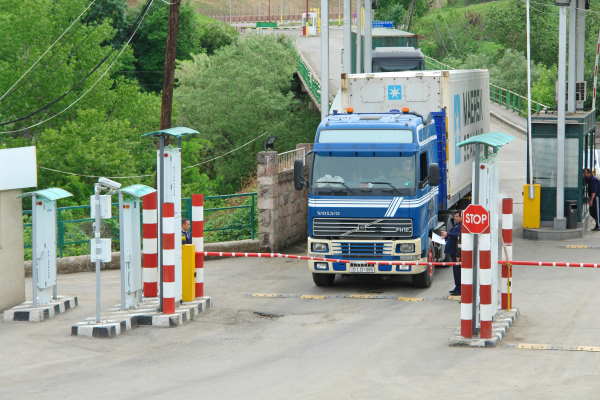
ASYCUDA has helped countries shorten clearance times, lower trade costs, facilitate trade and build capacity. It has also enhanced regional integration and South-South cooperation.
“A key value of the ASYCUDA programme has always been the collaborative network of administrations, partners and experts,” said Shamika N. Sirimanne, UNCTAD’s director of technology and logistics.
“The collaborative spirit is what makes ASYCUDA truly unique, allowing it to adapt to the ever-changing needs of customs officials,” she added.
In 2019, such collaborations included joint development of an electronic permit system with the secretariat of the Convention in International Trade in Endangered Species of Wild Fauna and Flora (CITES) to enable countries to better control legal trade of endangered species and prevent illegal trade.
ASYCUDA also partnered with the Common Market for Eastern and Southern Africa (COMESA) to improve its regional support centre and with the Economic Community of West African States (ECOWAS) to better manage cross-border customs operations.
Among other outcomes, ASYCUDA contributes to maximizing the yield from customs revenue, which is often the major contributor to national budgets in most countries, by ensuring that all goods are declared, that duty/tax calculations are correct and that duty/exemptions, preference regimes, and so on, are correctly applied and managed.
Furthermore, it aims at producing reliable and timely trade and fiscal statistics to assist in the economic planning process as a by-product of the customs clearance process.
An important objective of ASYCUDA projects is to implement the systems as efficiently as possible with a full transfer of know-how to national customs administrations at the lowest possible cost for countries and donors.
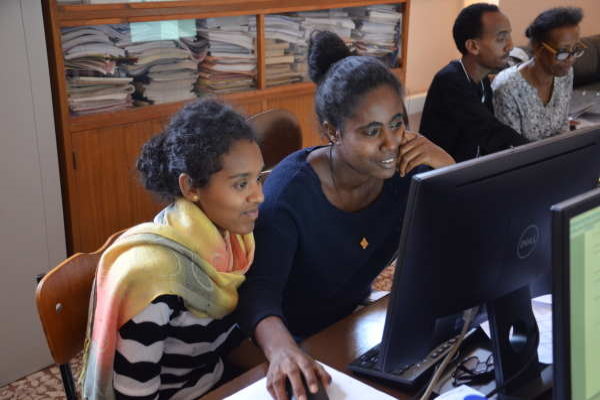
Many developing countries are reeling under mounting debt, as noted by experts at UNCTAD’s Twelfth International Debt Management Conference held in November.
According to our 2019 Trade and Development Report, global debt stocks expanded to their highest levels ever in 2017 – even beyond the levels experienced at the time of the global financial crisis in 2008.
From Argentina to Zimbabwe, soaring debt levels have severely exposed many developing countries to global economic and financial volatility regardless of their income level.
And shocks are sure to come, with global economic growth subdued, trade wars, climate emergencies and threats to multilateralism all contributing to uncertainty.
Effective debt management is an intrinsic part of sound public financial management and overall good governance. Active public debt management is also an essential tool for ensuring that countries maintain sustainable levels of debt, in pursuit of their broader development objectives.
UNCTAD’s Debt Management and Financial Analysis (DMFAS) Programme offers a set of proven solutions to improve the capacity of developing countries to manage public debt and consequently public resources.
In 2019, the DMFAS community continued to expand with two new countries adopting DMFAS. Azerbaijan and Tajikistan signed technical assistances projects to help them better manage their public debt the implementation of the DMFAS software and capacity-building activities. In total 59 countries and 86 institutions use DMFAS worldwide.
UNCTAD Secretary-General Mukhisa Kituyi said: “A more efficient public debt management system is imperative for sustainable economic growth, better governance and poverty alleviation.”
“It’s hard to imagine the development of a contemporary financial system without debt. However, proper management of the debt can create economic growth and development,” Azerbaijan’s finance minister, Samir Sharifov, said.
Our national rapid eTrade readiness assessments help countries to quickly identify barriers to further e-commerce development. These demand-driven assessments provide a basic analysis of the current e-commerce situation in the countries concerned to identify opportunities and barriers.
The resulting reports serve as a valuable input to these countries’ involvement in various discussions related to e-commerce and digital trade.
In 2019, we finalized assessments for Afghanistan, Bangladesh, Kiribati, Lesotho and Tuvalu.
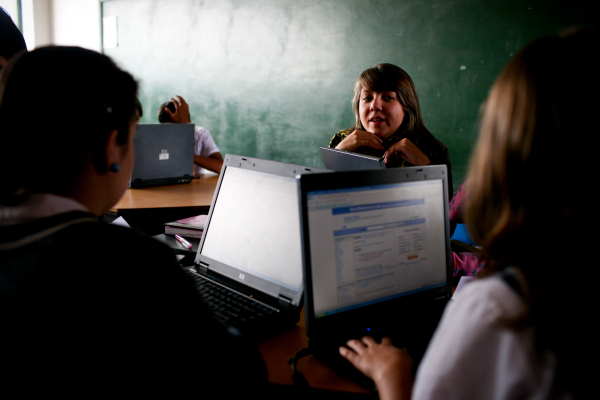
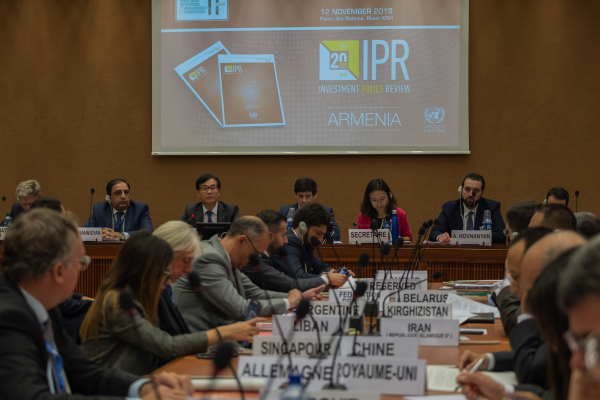
Our investment policy reviews (IPRs) continue to help developing countries and countries with economies in transition attract and benefit more from increased foreign direct investment (FDI), while improving their business climate.
In 2019, we finalized reviews for Angola, Armenia, Chad and Côte d'Ivoire, outlining measures for these countries to create sustainable and inclusive long-term growth and address the most pressing development issues facing their citizens. We also prepared a report on the implementation of the review of Nepal and launched a new review for Seychelles.
Angola
The IPR of Angola, which we unveiled in the capital, Luanda, in September, noted that the country had put in place an ambitious programme to reform the business and investment environment.
The IPR identified remaining gaps and bottlenecks, including the complex system for FDI entry and establishment, burdensome operational regulations, the persistence of restrictive business practices and a lack of institutional capacity and coordination. These gaps and bottlenecks affect the country’s ability to fully take advantage of its strategic location, abundant natural resources and preferential access to external markets.
The review also devoted special attention to investment in agribusiness and called for concrete measures to foster responsible investment and promote inclusive agriculture modes of production.
Armenia
Our IPR for Armenia, released in November at the eleventh session of UNCTAD’s Commission on Investment, Enterprise and Development, highlighted the country’s potential across a range of industries, including the booming high-tech industry, tourism, textile and garments, wine, agri-business and pharmaceuticals.
The IPR noted that achieving Armenia’s vision of fighting poverty and unemployment through a structural transformation of the economy will require investment policy reforms and a more significant investment promotion effort.
Chad
Our IPR of Chad, also released in November, observed that economic diversification holds the key to unlocking more investment and achieving the Sustainable Development Goals in the country.
The economy remains highly dependent on the oil industry, which receives the bulk of FDI inflows. However, through policy reform and more targeted FDI promotion efforts, some other sectors, including agriculture, could benefit from FDI and help the country make significant progress towards inclusive and sustainable development.
Côte d'Ivoire
Our IPR of Côte d'Ivoire, a draft of which was discussed at a national workshop in Abidjan in November, proposed measures to create sustainable and inclusive long-term growth and address the most pressing development issues facing Ivorians.
Requested by the Ivorian government as part of its reform agenda to improve the business environment, the IPR proposed an approach to move in the direction of sustainable and inclusive long-term growth.
The IPR focused on attracting more investment, increasing the value addition derived from it, and ensuring that it is distributed more evenly within the country. It analysed critical regulatory instruments, including but not limited to access to land, taxation, intellectual property and governance, to further improve the framework for investment.
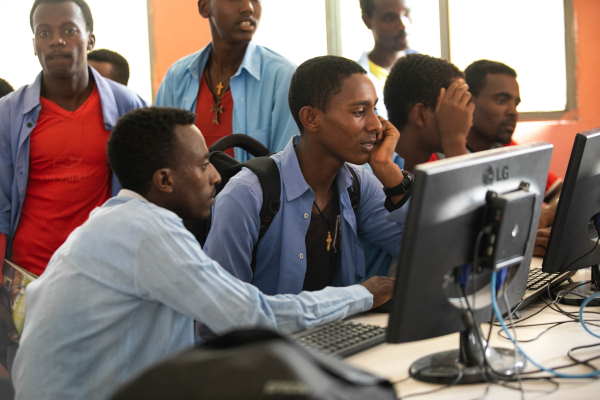
In 2019, we continued to support developing countries in in strengthening their science, technology and innovation policy by conducting policy reviews (STIP reviews) and related capacity-building. We published the STIP reviews of Ethiopia and Panama, finalized the review of Uganda and launched new projects in the Dominican Republic and Zambia.
In Panama, the recommendations of the STIP review were taken by the National Secretariat for Science and Technology as a major input to the preparation of the new national STI policy document for 2020-2025.
In Ethiopia, the Ministry of Innovation and Technology requested our support on the formulation of the new STI policy taking into consideration the findings of the review.
The STIP review of Ethiopia underscored the need to strengthen the country’s progress in technological learning and innovation to underpin its future progress in sustainable development.
The review showed how improved use of science, technology and innovation policies could build innovation capacity, upgrade technologies and accelerate Ethiopia's development process.
Launched in November, the review evaluated innovation capacity, policies and institutions in Ethiopia and suggested how the government and other key stakeholders could better harness innovation, technology and science to accelerate development and achieve the Sustainable Development Goals.
“Innovation ultimately takes place at the firm-level, but the state plays a key role as a facilitator of the national innovation system,” said Shamika N. Sirimanne, UNCTAD’s director of technology and logistics division during the Ethiopia report’s launch in Addis Ababa. “The state is the glue that holds the innovation system together.”
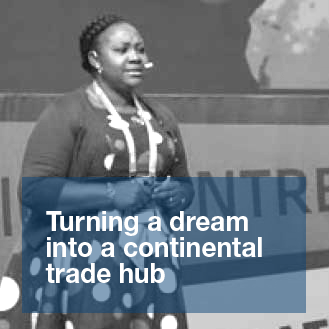
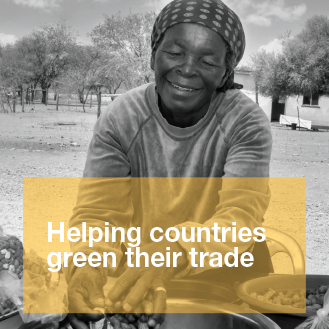
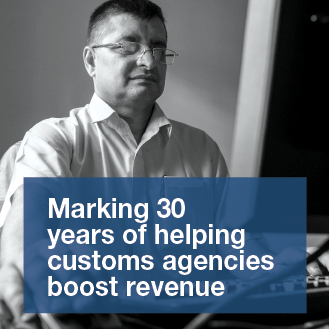

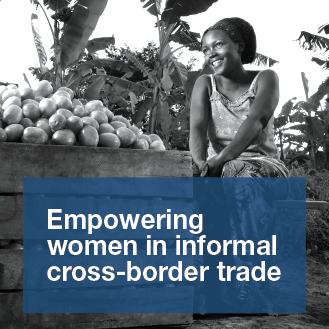
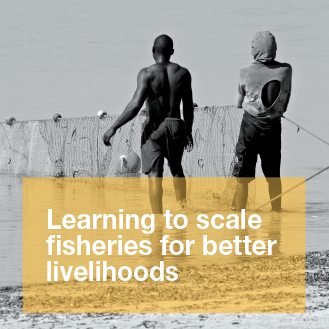
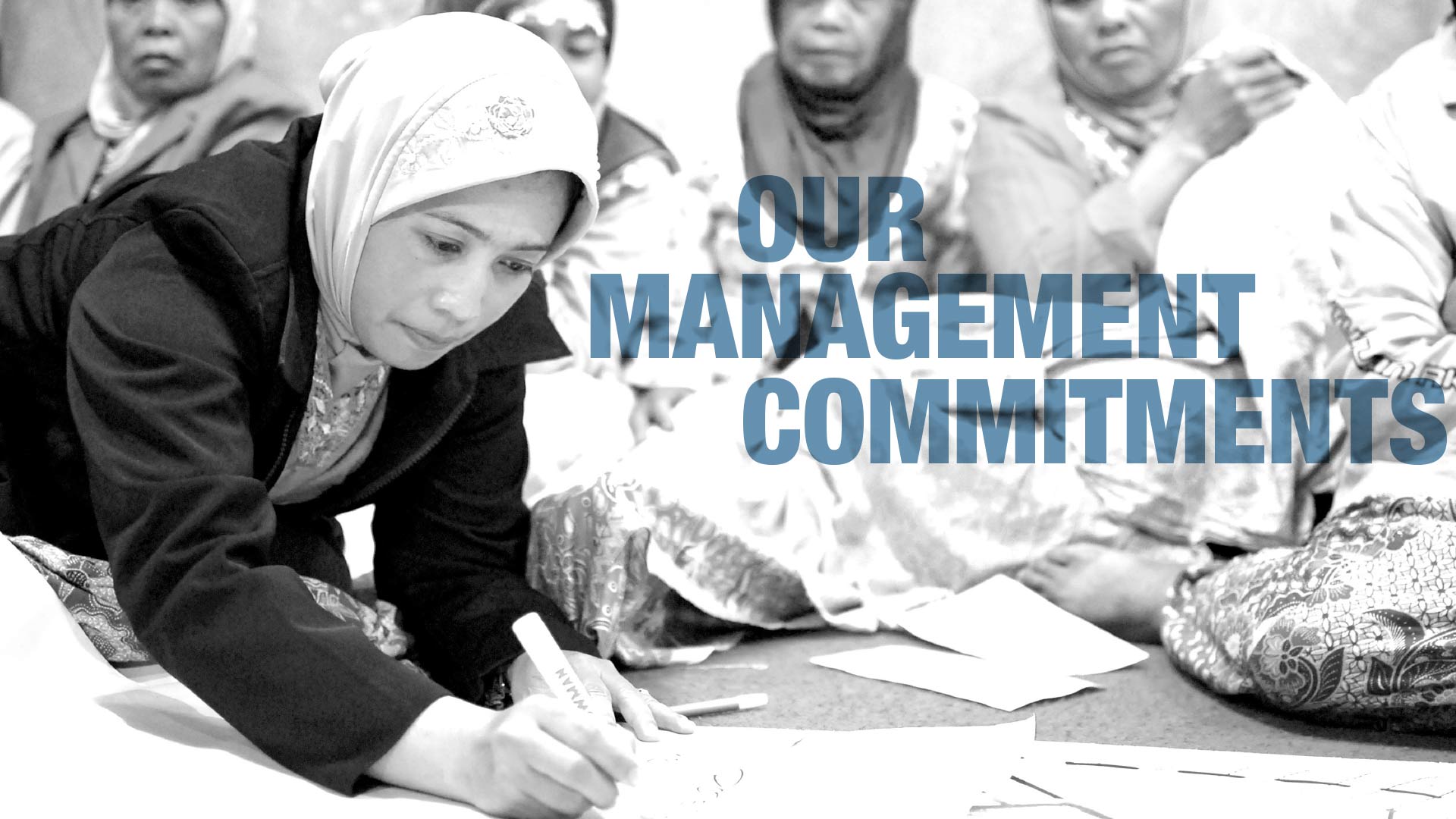
We remain committed towards programme and organizational effectiveness as well as sustainable and robust development results.
In 2019, we continued to enhance our efficiency, effectiveness, transparency and accountability, including through results-based management.
We continued to strengthen our coordination and engagement with United Nations oversight bodies, implementing 12 out of 14 oversight body recommendations.
Evaluations completed in 2019 clearly affirmed the relevance of our work and observed our unique role in fostering an equitable global economic environment for sustainable development.
We completed the evaluation of eight projects covering issues ranging from diversifying fish exports to shifting towards sustainable freight transport.
They showed that our work has contributed towards several intended results at the national, regional and global levels.
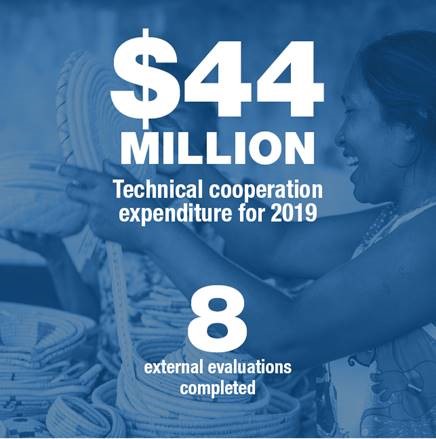
For example, our project on building capacities of selected least developed countries (LDCs) to upgrade and diversify their fish exports emerged as a good example of South-South cooperation modalities by highlighting the experience of developing countries, which are more relevant for LDC contexts.
The project also demonstrated the benefit and effectiveness of a market-based approach using value chain analysis models, which can help in identifying suitable positioning of the fisheries sector in a relevant market.
For instance, in Madagascar, knowledge acquired from the project helped to formulate the Madagascar Emerging Plan, outlining export development and diversification strategies to tap the potential of its fishery sector.
Another example is our project on strengthening capacities of policymakers to assess implications of non-tariff measures (NTMs) in international trade and formulate appropriate policy responses.
The project contributed to enhancing the awareness, knowledge and capacity of project participants to analyse the effects of NTMs using established NTM data platforms and improved analytical research and tools in 15 countries (Argentina, Australia, Brazil, Chile, China, Cuba, Japan, Kenya, New Zealand, Pakistan, Peru, Russia, South Africa, Thailand and Vietnam.
The evaluation found that the project’s activities were relevant for stakeholders in differentiated forms and seem to have been able to set a context in which the sustainability of the results achieved could be maintained over time as interest in NTMs had been sparked by the project among many stakeholders, including donors.
A synthesis of the evaluations of our subprogrammes and review of outcomes from the implementation of recommendations underscored that evaluations strengthened our work. We established new secretariat-wide initiatives to strengthen collaboration and interdivisional dialogue, such as the Crossing the Line Initiative.
Gender mainstreaming and parity
We integrate a gender perspective in our operational activities, deliverables and results, as per our mandate.
Gender mainstreaming is considered a cross-cutting issue of relevance to all UNCTAD subprogrammes, as we recognize that gender equality and women economic empowerment are key elements to achieve the ambitions of the 2030 Agenda for Sustainable Development.
Our 2018-2020 gender parity strategy specifies main objectives and means to enable the environment for women and men to have equal opportunities for professional development.
Gender considerations are mainstreamed in our flagship reports, seminal research publications and statistical products. Technical assistance programmes such as the investment policy reviews have also embedded gender in their analytical framework.
Our trade, gender and development programme assists member countries in enhancing their understanding of the links between trade and gender, in conducting gender impact assessments of trade policies and agreements, as well as in formulating and implementing gender-sensitive trade policies through its many activities including research and analysis, technical cooperation and intergovernmental dialogues.
In 2019, we continued to implement our gender mainstreaming strategy and to strengthen the capacity of member states to design and implement trade policies that allow women to benefit from the opportunities arising from international trade.
Nearly 500 participants from developing countries, least developed countries and countries with economies in transition took part in our online courses on trade and gender in 2018 and 2019, with more than half stating that the courses exceeded (30-35% of participants on average) or considerably exceeded (on average 20-30 % of participants) their expectations.
To enhance economic policies and strategies at all levels for sustained growth, inclusive and sustainable development, full employment and decent work for all and poverty eradication in developing countries, especially the least developed countries, including through North–South, South–South and triangular cooperation.
To ensure inclusive growth and sustainable development through investment and enterprise development for the enhancement of productive and technological capacity-building, industrialization, economic diversification, job creation and progress towards achieving the Sustainable Development Goals.
To ensure the effective, qualitative and beneficial participation of all countries in international trade and to strengthen development gains from the commodity economy and address the trade and development challenges of commodity dependence.
To strengthen inclusive growth and development through science, technology and innovation, including information and communications technology for development; efficient, resilient and sustainable trade logistics services; and training and capacity-building programmes.
To progressively and beneficially integrate Africa, the least developed countries and other groups of countries in special situations (landlocked developing countries, small island developing States and other structurally weak, vulnerable and small economies) into the global economy through the development of national policies and international support measures to build productive capacities for economic development and poverty reduction.
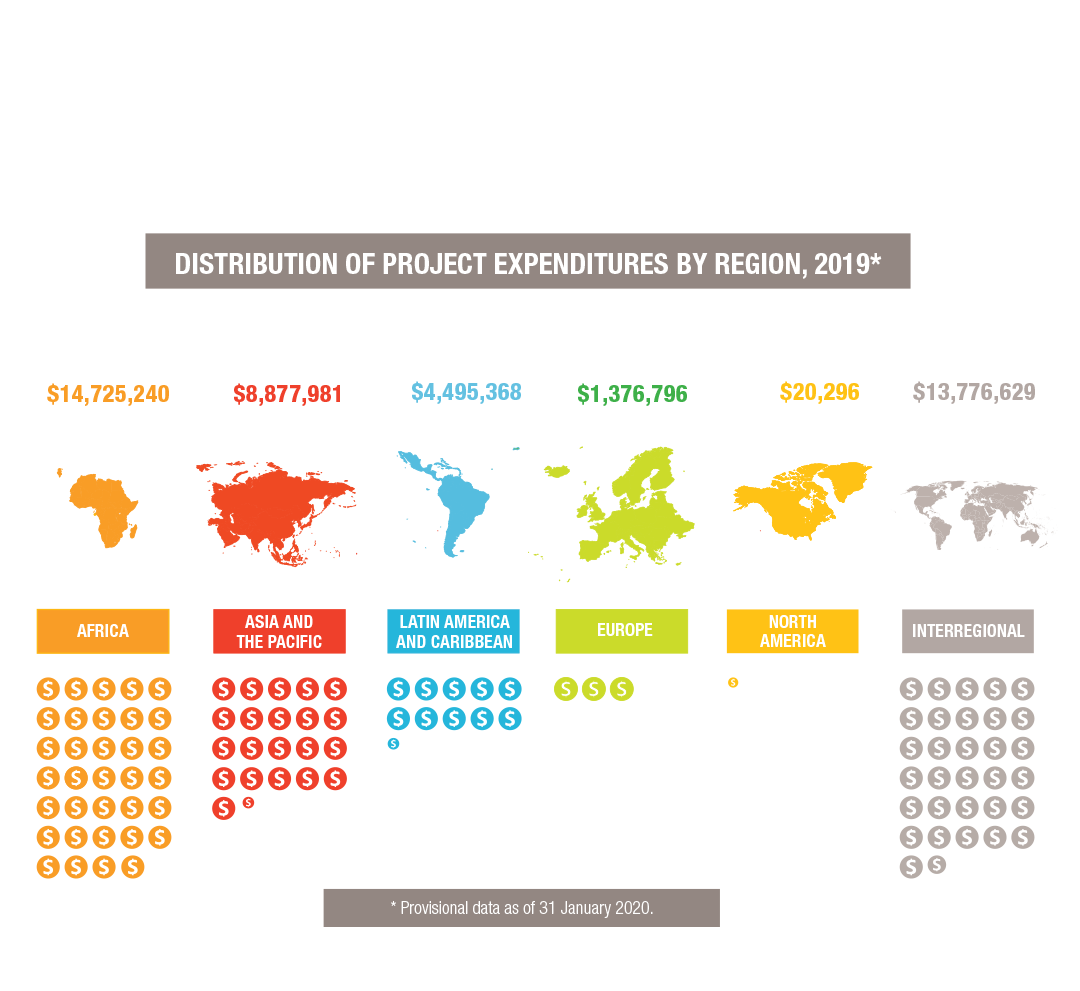
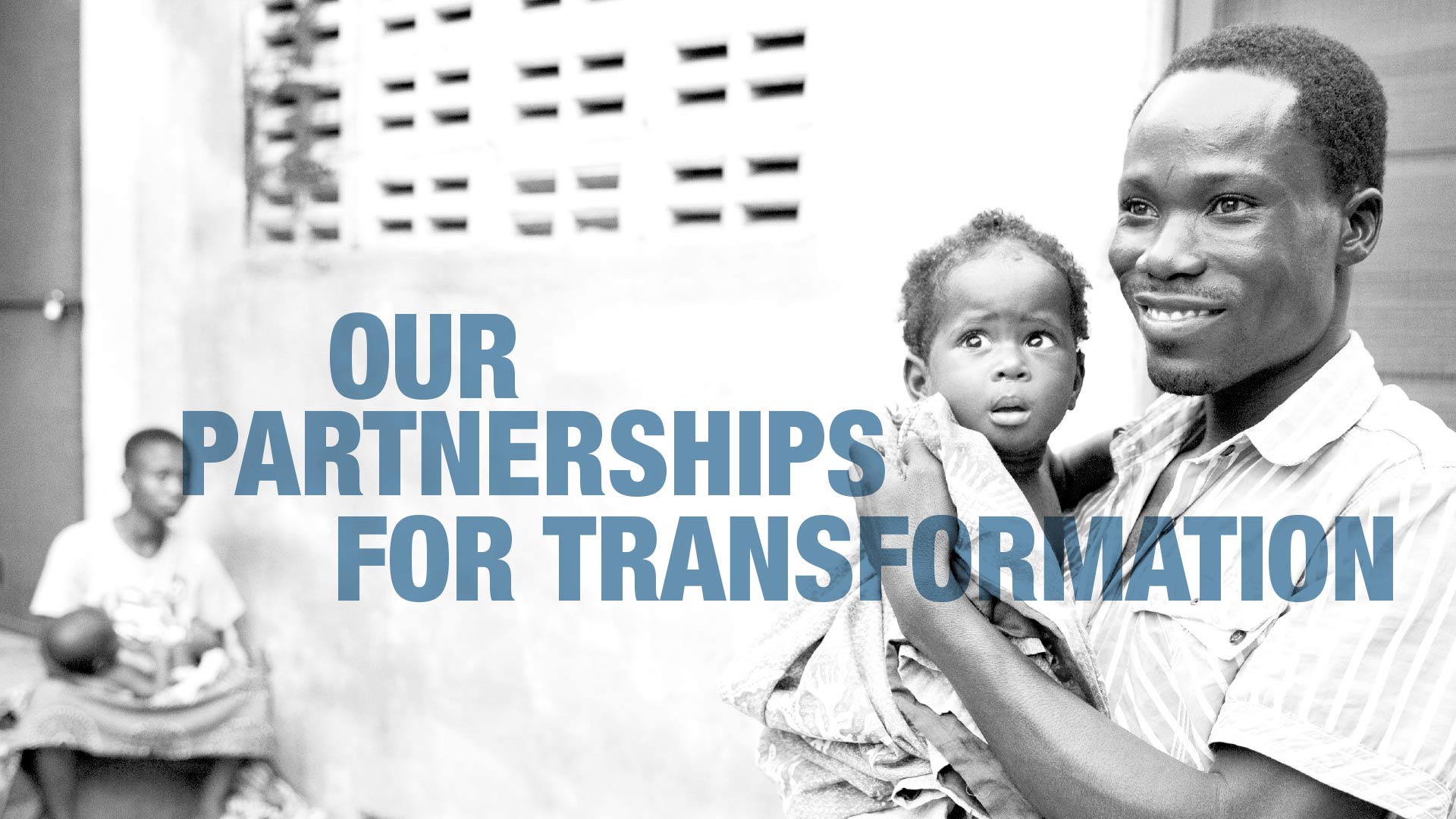
UNCTAD is proud of its partnerships within the United Nations family and further afield.
One of the main objectives of cooperation with other entities is the combination of our expertise with the reach and presence of partner entities in order to maximize the impact provided to beneficiaries, especially at this difficult moment for multilateralism and in a challenging external economic environment.
In 2019, we entered into various cooperation agreements with private sector entities to advance trade and development issues, including the China Silk Road Group, 50Breakthroughs Foundation, World Benchmarking Alliance and Rockefeller Foundation. We also updated our due diligence guidelines, drawing from experiences of the United Nations Global Compact.
We used our convening power to bring various stakeholders to the joint table to debate, exchange experiences, identify best practices, and develop global standards on the most pressing issues.
We joined hands with the UN Economic Commission for Africa to support the implementation of the African Continental Free Trade Area and with the African Union to tackle non-tariff barriers that make trade in Africa difficult or costly.
We stepped up our work with the UN Office on Drugs and Crime on efforts to quantify and help stem illicit financial flows that drain on vital and scarce resources in many developing economies.

UNCTAD Secretary-General Mukhisa Kituyi, Deputy Secretary-General Isabelle Durant and the president of the organization’s Trade and Development Board, Ambassador Michael Gaffey of Ireland, with the delegations of Barbados and the United Arab Emirates, after the board endorsed a decision to hold the 15th UNCTAD quadrennial conference in Bridgetown, Barbados in October 2020, and the World Investment Forum and the first eCommerce Week for Asia in Abu Dhabi, United Arab Emirates in December 2020.
Our collaboration with the International Organization for Migration and the UN Refugee Agency, UNHCR, grew stronger as we promoted the impact of migrants and refugees on host countries' economies and entrepreneurship.
We continued our work to boost the Blue Economy with the UN Division for Ocean Affairs and the Law of the Sea, and, in cooperation with the UN Development Programme and the Commonwealth Secretariat, strengthened our partnership with the UN Environment Programme, the UN Food and Agriculture Organization and others on trade-related aspects of Sustainable Development Goal 14 on life below water.
The UNCTAD partnership with the International Trade Centre is fundamental for increasing awareness of programmes for biotrade, non-tariff measures, trade facilitation, green jobs and many others, while our relationship with the World Trade Organization is equally essential in these and numerous other areas including, for example, assistance to cotton-producing countries on adding value to cotton by-products.
The UNCTAD-led UN Inter-Agency Cluster on Trade and Productive Capacity was recognized as the right mechanism to address the challenges of repositioning the UN development system at the country level during a dedicated session of the UN Economic and Social Council in May.

In November, Germany's Ministry of Economic Cooperation and Development agreed to contribute €1.6m ($1.76m) over three years to UNCTAD's work programme on e-commerce and the digital economy. The funding will support UNCTAD’s programme to help ensure the evolving digital economy delivers for all, not just a few people.

In July, we boosted our joint efforts with TradeMark East Africa to ease trade in East Africa by signing a $3.1 million agreement for the second phase of a project focused on facilitating trade in the region. The first phase of the project was implemented between 2016 and 2018 with a budget of $3.4 million.

In May, we signed a €3 million (US$3.34 million) agreement with the Common Market for Eastern and Southern Africa to help make it easier and faster to move goods in the region, building on our experience in facilitating trade on the continent.
The UNCTAD-led cluster is an interagency mechanism dedicated to the coordination of trade and development operations at the national and regional levels within the UN system.
Besides UNCTAD, the other members of the cluster are FAO, ITC, ILO, UNDP, UNEP, UNIDO, UNOPS, WTO and the five regional commissions.
The cluster makes a concrete and direct contribution to the UN system-wide coherence reform by coordinating its participation in operations at global, regional and country levels and by accessing innovative multi-donor funding mechanisms.
The cluster’s aim is to respond in the best possible manner to the pressing needs of governments on priority themes such as trade and value chains, trade facilitation, and trade and employment, which require comprehensive solutions.
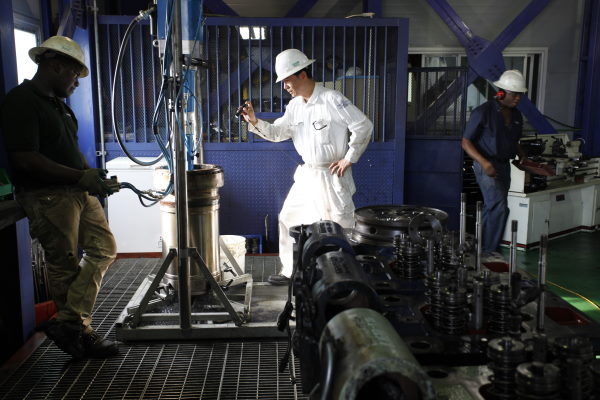
A dedicated session of the UN Economic and Social Council (ECOSOC) on operational activities for the development segment held in New York in May, recognized the cluster as right mechanism to address the challenges of repositioning the UN system at the country level.
During the event, representatives of various countries and donors underscored the need to fund the cluster, as it brings the UN system together to improve its efficiency, coherence and impact on trade and development matters at the country level.
Building on its longstanding expertise with more than 30 joint operations delivered in the context of the UN Sustainable Cooperation Assistance Frameworks (UNSCDFs) worldwide, the cluster is an example of best practices on how to move forward with:
The 2019 version of the cluster’s brochure, which was presented at the ECOSOC event in May, is available here.

In July, we strengthened our cooperation with the International Organization for Migration to address issues related to the nexus between migration, trade and development. Our joint work will support countries to ensure effective, efficient and responsible migration governance, border management, entrepreneurship, as well as the safe, orderly and regular migration and mobility of people.
“Migration can contribute significantly to inclusive prosperity if properly aligned with policy instruments in areas of investment, finance and trade,” UNCTAD Secretary-General Mukhisa Kituyi said.
IOM Director-General Antonio Vitorino said: “Developing country governments are seeking to establish a healthy balance between maximizing development benefits from migration and ensuring good governance and effective border management, security and control. Facilitating legitimate cross-border mobility alongside cross-border trade of goods and services, contributes to much-needed socio-economic sustainable development, and realizing this balance.”
UNCTAD and IOM had earlier joined forces, together with UNHCR, to develop a policy guide on entrepreneurship for migrants and refugees, currently being rolled out in different countries.
Sustainable Development Goal 12 requires companies to adopt sustainable practices and to integrate sustainability information into their reporting cycle.
Many businesses are starting to integrate their performance against the global goals in their mainstream annual reports.
We joined forces with the International Integrated Reporting Council (IIRC) to make this practice the norm by working with key stakeholders to fully integrate SDGs in their reporting cycle.
In June, we signed an updated memorandum of understanding to deepen collaboration on promoting integrated reporting.
Integrated reporting is the concept of a more holistic form of reporting the value created by a business. An international framework is used to accelerate the adoption of integrated reporting across the world.
“We are delighted to be continuing our effective collaboration with the IIRC,” UNCTAD Deputy Secretary-General Isabelle Durant said.
She added: “While challenges still remain with regard to how contributions to the SDGs can be more substantially integrated into corporate strategy and reporting, the international integrated reporting framework serves as an effective and flexible tool for tackling the key challenges for businesses to meet goal 12 of the SDGs.”
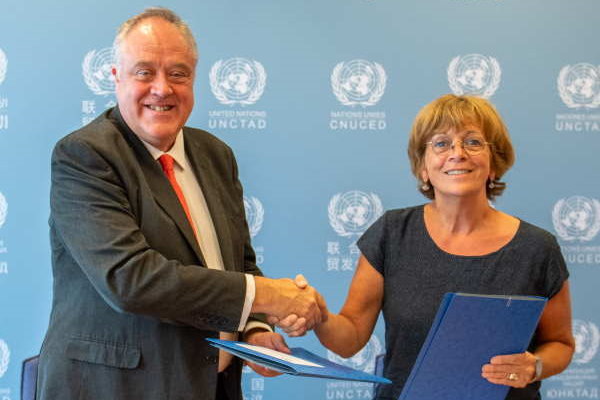
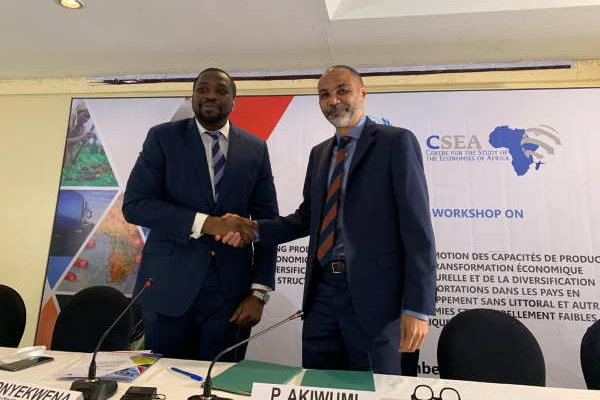
UNCTAD centres of excellence serve as network hubs for capacity building in the African and Asian regions.
They provide opportunities for policy practitioners and stakeholders from least developed countries (LDCs) and other developing economies to benefit from targeted and practical training on trade and development-related themes.
In 2019, we created three new centres – with the European University Institute in Florence, Italy; the Ministry of Ocean Economy, Marine Resources, Fisheries and Shipping in Mauritius; and with the Centre for the Study of the Economies of Africa (CSEA) in Nigeria –increasing them to five.
“We are delighted to join hands with the Centre for Study of African Economies, which brings excellent research-capacities as well as strong regional knowledge of the development challenges of Africa,” said the head of UNCTAD’s Africa and least developed countries division, Paul Akiwumi, after signing an agreement with CSEA in December.
CSEA executive director Chukwuka Onyekwena said: “We are confident that our collaboration with UNCTAD will significantly enrich our work and allow it to reach a wider audience.”
In May, we signed a memorandum of understanding with Mauritius to open a new centre of excellence for the fisheries sector in developing countries.
The centre will serve as a practical site for putting policy recommendations for LDCs into action.
It will host training and capacity-building events for African and Asian countries, with an eye towards harnessing the potential of their fisheries and aquaculture sectors for sustainable growth, transformation and poverty alleviation.
Civil society groups and UNCTAD met in October to discuss trade and climate change for the third edition of our HiveTalks.
The event, which brought together two dozen civil society representatives and UNCTAD experts, took the form of several rounds of moderated brainstorming on how trade could be a driver of climate action, and what commerce would look like in a future that is 2 degrees Celsius warmer.
Participants circulated between groups to “cross-pollinate” new ideas and take advantage of the collective intelligence in the room – the ways bees work in a hive.
“Ideas are always more innovative when they come from a group’s diverse experiences and expertise. That’s the beauty of the HiveTalks model,” UNCTAD Deputy Secretary-General Isabelle Durant said, adding that the methodology forces organizations to break from the traditional panel set-up.

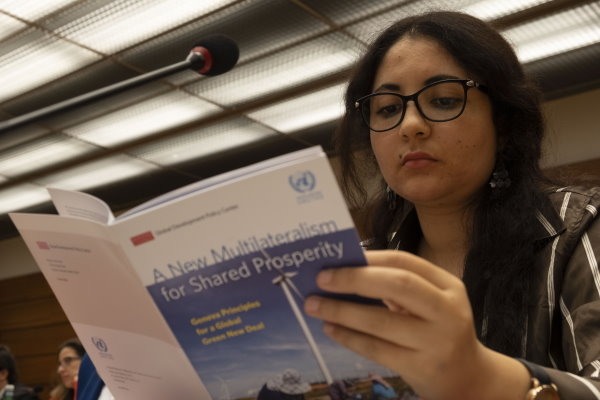
The current state of the global political economy was under the microscope of young scholars and policymakers in August, as the annual UNCTAD Summer School 2019 interrogated stalled multilateralism and its impact on development and the environment. The school covered a wide berth of topical policy debates in which UNCTAD is engaged and offered a theoretical, historical, economic and policymaking perspective on the topics.
Leading economists pitched a global green new deal to attendees, as the solution to the crisis facing the multilateral system.
Scholars attending the week-long classes received a powerful history lesson on globalization and development, with a focus on how this has impacted developing nations.
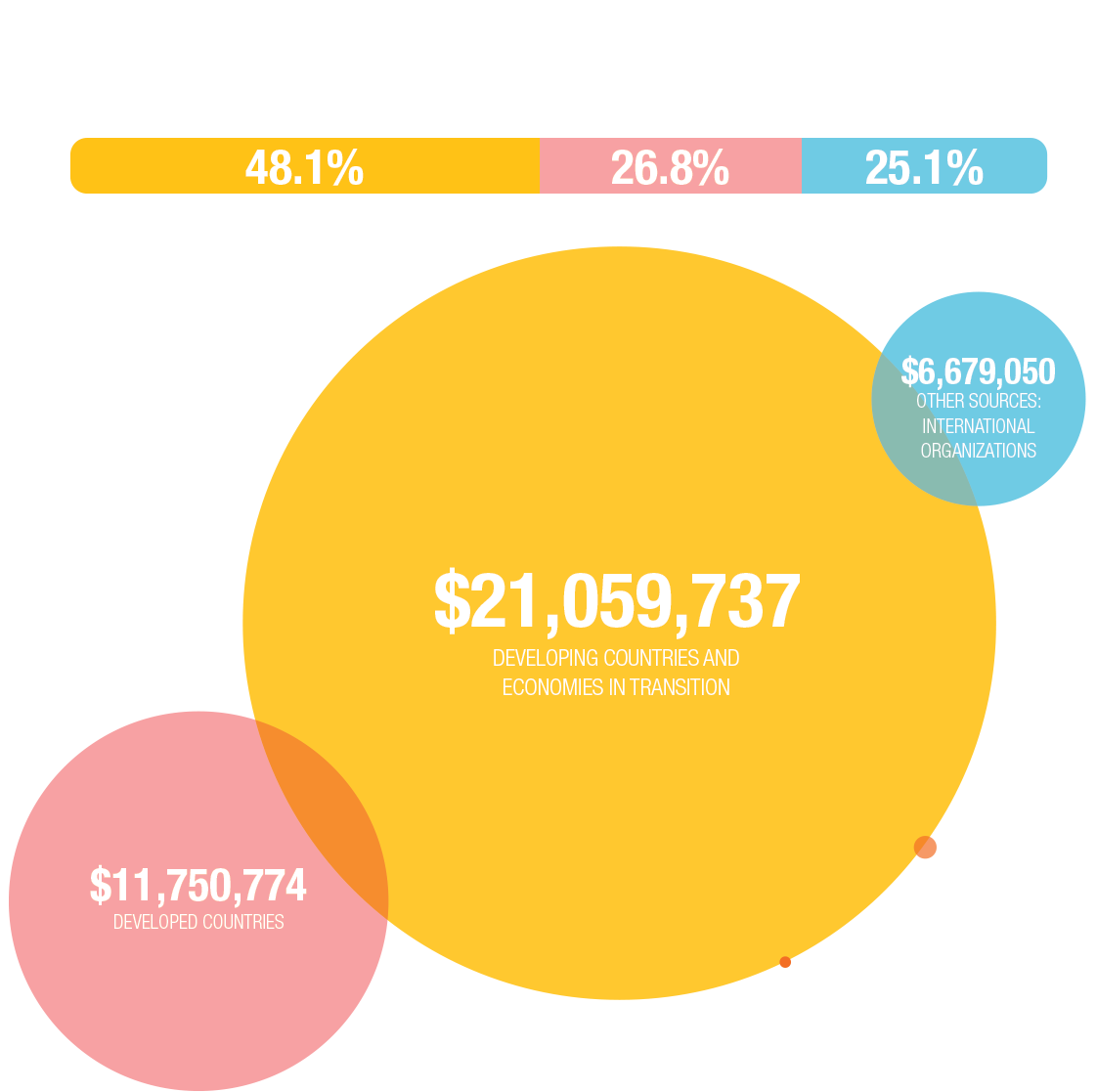
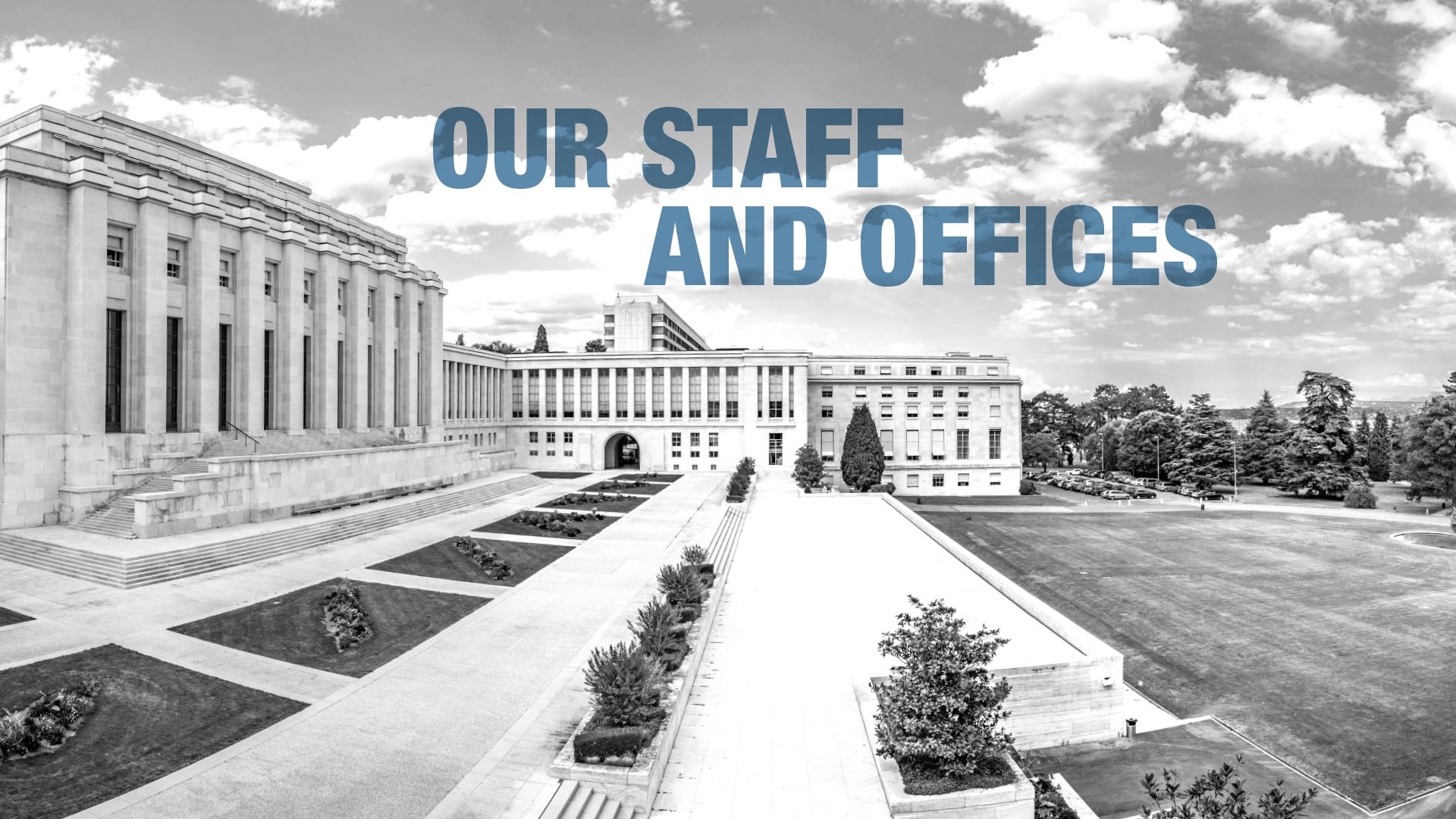
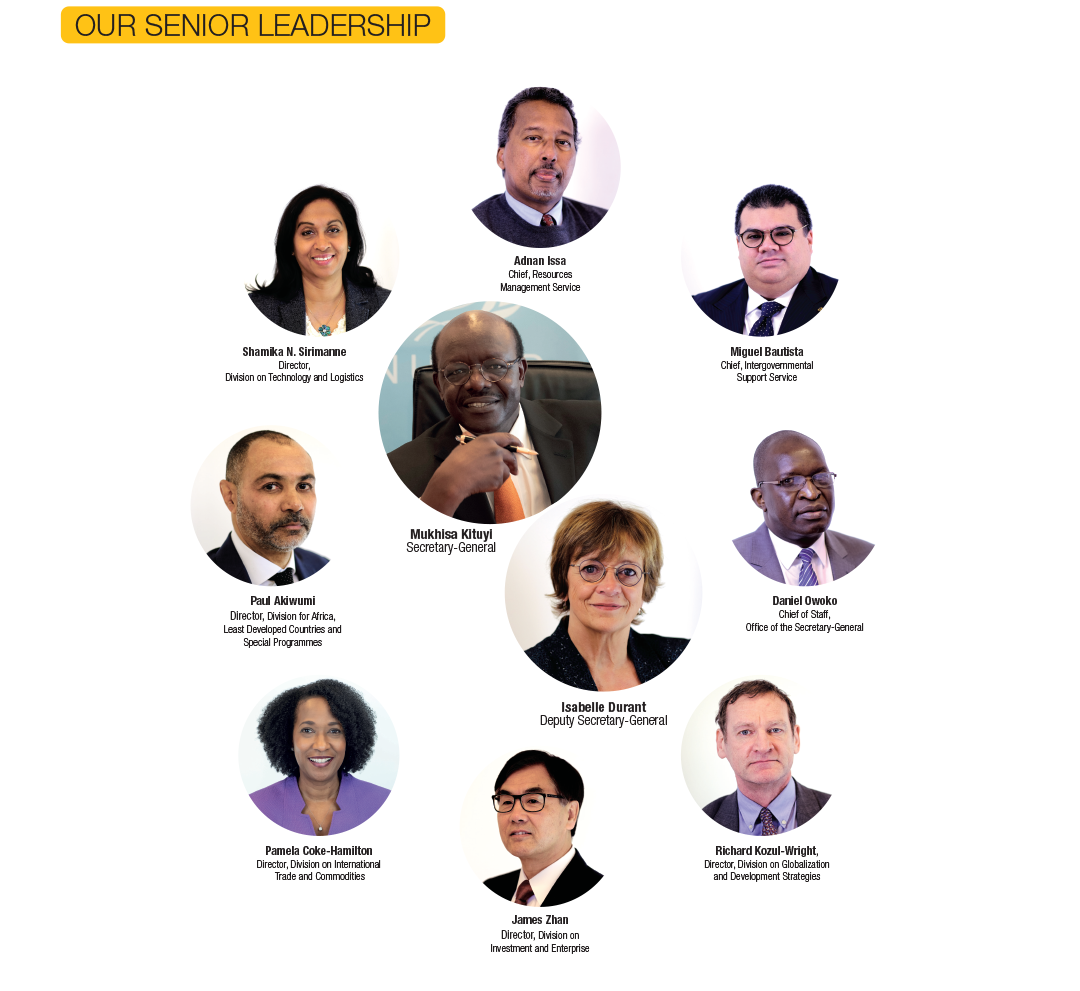
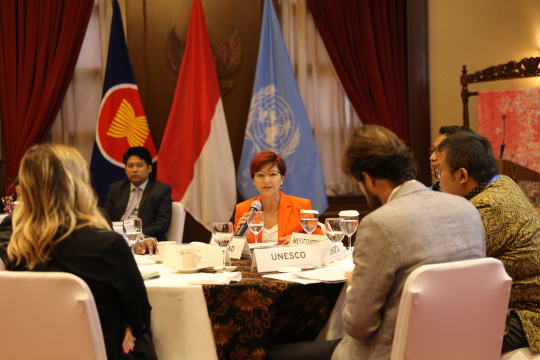
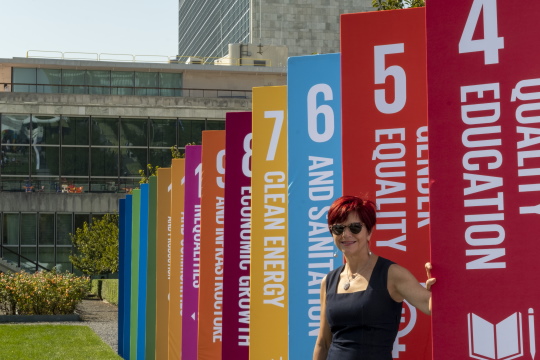
In 2019, our New York Office continued to strengthen Geneva-New York linkages, facilitating the connection of UNCTAD’s work on trade, finance, investment, technology and sustainable development with the intergovernmental processes in New York within the main organs of the UN - the General Assembly (GA), the Economic and Social Council (ECOSOC) and their subsidiary bodies.
The office strengthened the engagement of our senior management with these organs as well as with member States and interagency processes, ensuring UNCTAD’s active participation. It also represented UNCTAD in the elaboration and implementation of the Secretary-General's Roadmap for Financing the 2030 Agenda and follow-up to the High-Level Panel on Digital Cooperation.
Our New York team facilitated the participation of UNCTAD in the High-level Dialogue on Financing for Development and the High-Level Political Forum, both at the ECOSOC and GA levels, as well as other meetings throughout the year. The team also facilitated the participation of 13 UNCTAD Youth Network members in the 2019 ECOSOC Youth Forum, which focused on Sustainable Development Goals 8 and 10.
The New York office continued to support Geneva in co-chairing the Technology Facilitation Mechanism and the Multi-stakeholder Forum on STI. It also represented UNCTAD in the Inter-Agency Task Team on Financing for Development and on the Global Sustainable Development Report, as well as the newly created Network of Economists.
We also co-sponsored several meetings on entrepreneurship, gender, and STI, as well as sustainable and impact investment, establishing UNCTAD as a key player in these areas in New York. This reputation allowed us to promote and increase the visibility of UNCTAD’s eTrade for Women initiative by having our eTrade for Women advocates featured during the high-level week of the 74th GA session.
In the GA’s Second Committee, member States gave two additional resolutions - one naming 2021 as the International Year of the Creative Economy and another on promoting investment for sustainable development - to UNCTAD as the substantive secretariat. Therefore UNCTAD is mandated to monitor and write reports on the resolutions’ implementation on behalf of the UN Secretary-General. The two resolutions were added to the five - on ICT, international trade, external debt, commodities and STI - that our New York office has supported over the years.
What was innovative was the format of the requested reporting. UNCTAD is mandated to report to the GA on the implementation of the two added resolutions, as well as on illicit financial flows, through dedicated sections of existing UNCTAD reports - the Creative Economy Outlook, the World Investment Report, the Trade and Development Report and the SDG Pulse, our online statistical report - rather than through additional Secretary-General reports.
Our New York office also continued to represent UNCTAD in the reform of the Development System process, successfully arguing for the central role of structural economic transformation for developing countries in the new Cooperation Framework that replaced the United Nations Development Assistance Framework. We also continued demonstrating the key role that specialized and non-resident agencies play in providing integrated policy advice and the need to reflect this role in the reform at the national and regional levels. We also contributed to the Funding Compact.
Facilitating technical cooperation and liaison with pan-African trade-related institutions
The UNCTAD Regional Office for Africa based in Addis Ababa, Ethiopia, facilitates and coordinates our technical assistance for the benefit of the African Union Commission, regional economic communities, countries, other key stakeholders and partners on the continent.
In 2019, we supported negotiations of the African Continental Free Trade Agreement (AfCFTA) at various levels – from offering technical advisory services to drafting modalities and legal texts of various sections of the agreement.
The AfCFTA promises to create the world’s largest free trade area, a $3.4 trillion market that will ease trade across borders for the continent’s 1.3 billion people.
UNCTAD Secretary-General Mukhisa Kituyi joined the continent’s leaders at the launch of the AfCFTA’s operational phase in Niamey, Niger, in July, after the agreement entered into force in May.
In addition, our Regional Office for Africa was instrumental in the development and launch in July of an online mechanism for the identification, reporting, monitoring and elimination of non-tariff barriers in the free trade area.
An UNCTAD report shows that African countries could gain $20 billion each year by tackling such barriers at the continental level – much more than the $3.6 billion they could pick up by eliminating tariffs.
The office also provided capacity-building support on the development and publication of the Assessing Regional Integration in Africa report (ARIA IX), the development of the methodology for the AfCFTA Country Business Index and the development and launch of the Ethiopia Entrepreneurship Strategy, among others.
Further, it supported capacity-building workshops and seminars on the dissemination of the online mechanism on non-tariff barriers in various African countries, in collaboration with the UN Economic Commission for Africa.
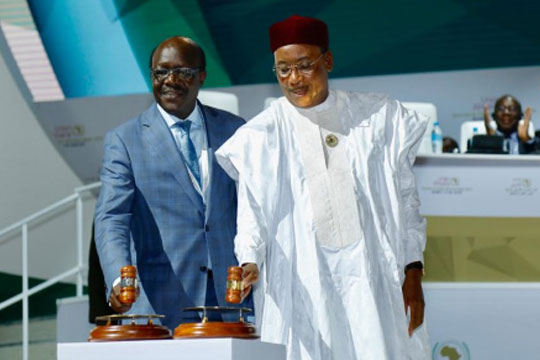
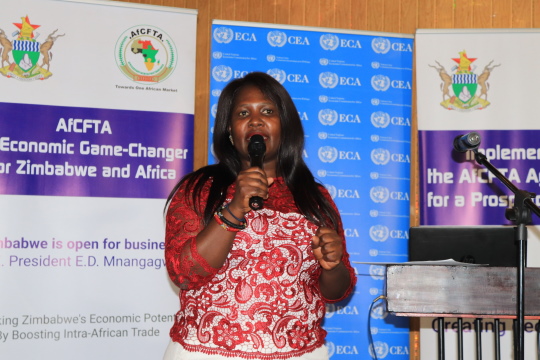
The regional office in collaboration with the African Union Commission hosted and facilitated the third Addis Ababa Trade Policy Dialogue on the margins of the African Union Industrialisation Week. During the dialogue, trade experts and stakeholders from other sectors deliberated on ways to harness the AfCFTA to create jobs, especially for youth and women.
Our Addis Ababa team also forged multi-stakeholder partnerships with key interlocutors on trade and development in Africa, notably from the UN Economic Commission for Africa, the African Development Bank, civil society organizations, academia and various departments of the Ethiopian government.
They participated in discussions on the role of the private sector in achieving its objectives under the AFCFTA. These discussions brought together business associations from across the continent to share their perspectives. They were facilitated by the African Union Commission, the Coalition for Dialogue on Africa, the African Development Bank, the African Export-Import Bank and the AfroChampions Initiative.